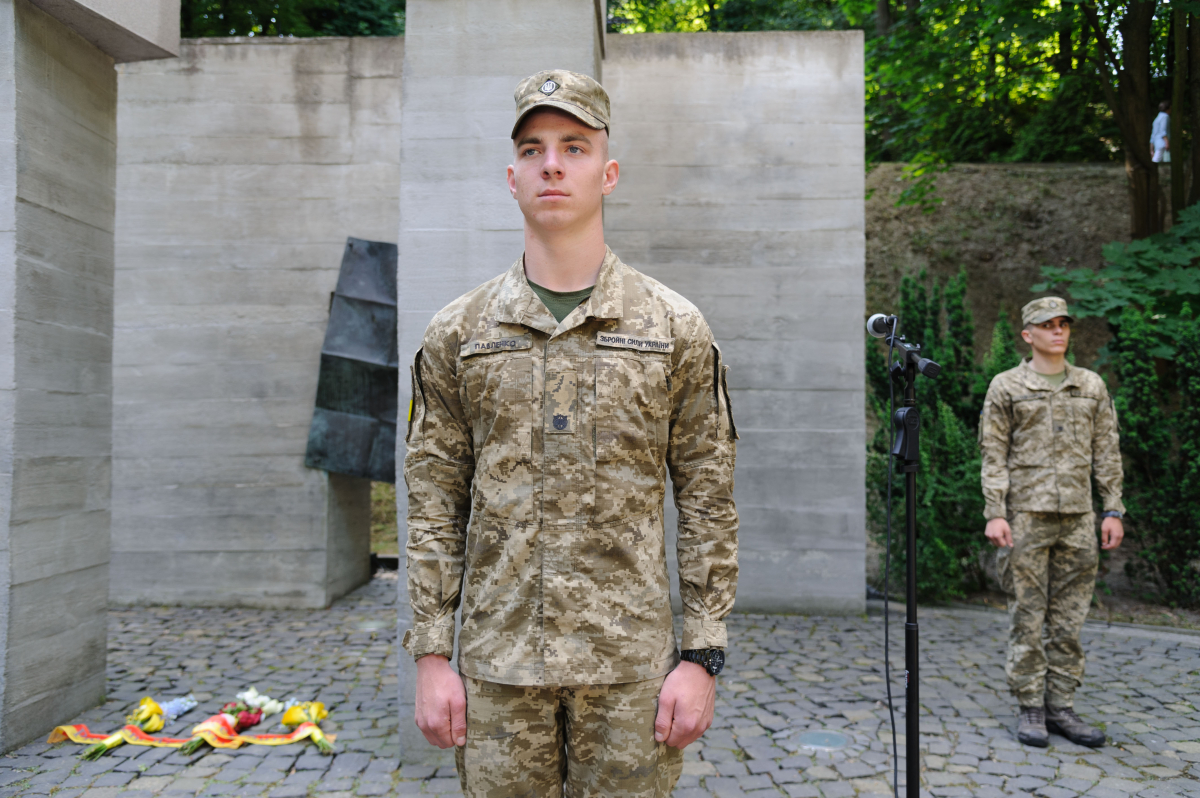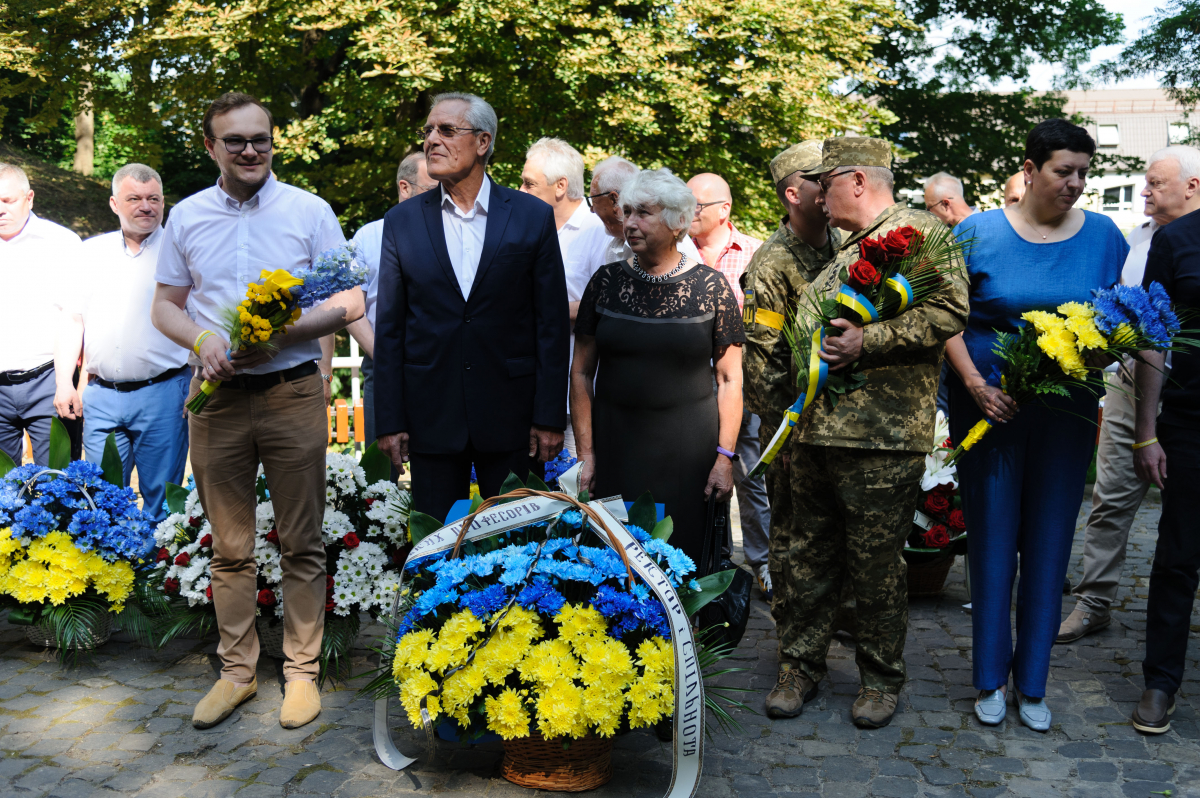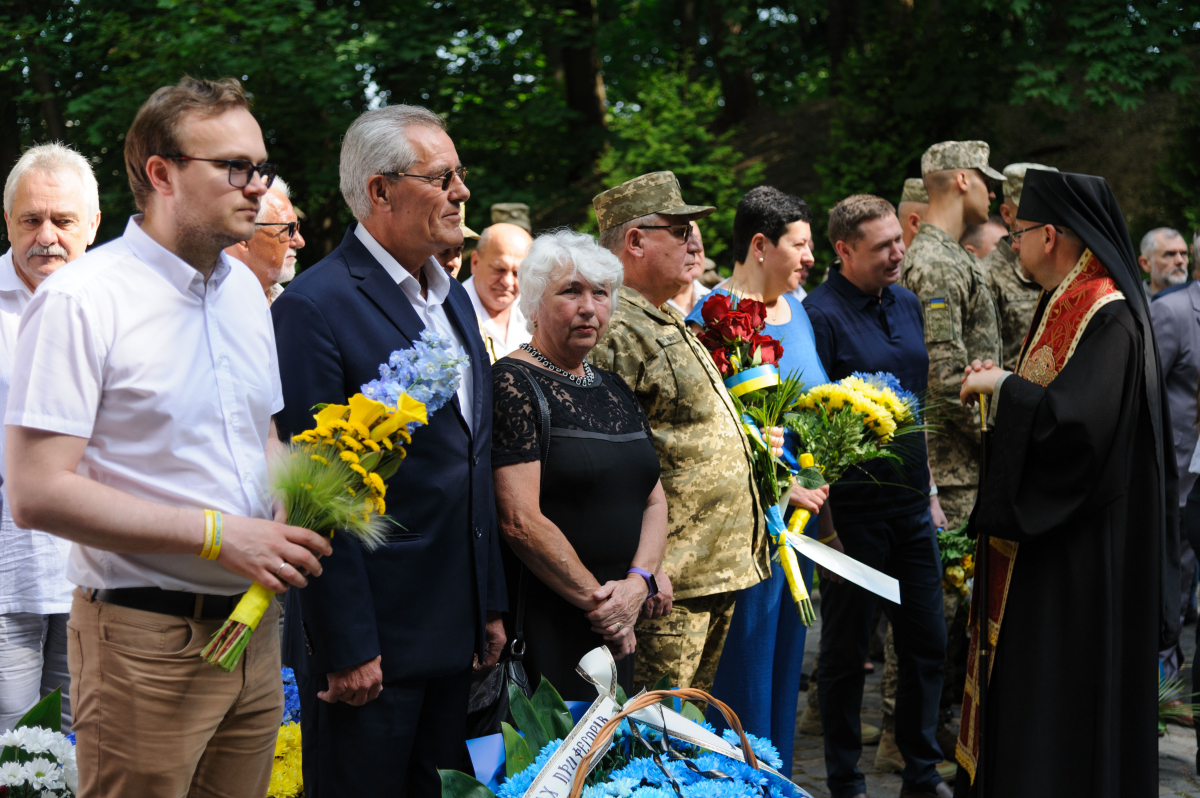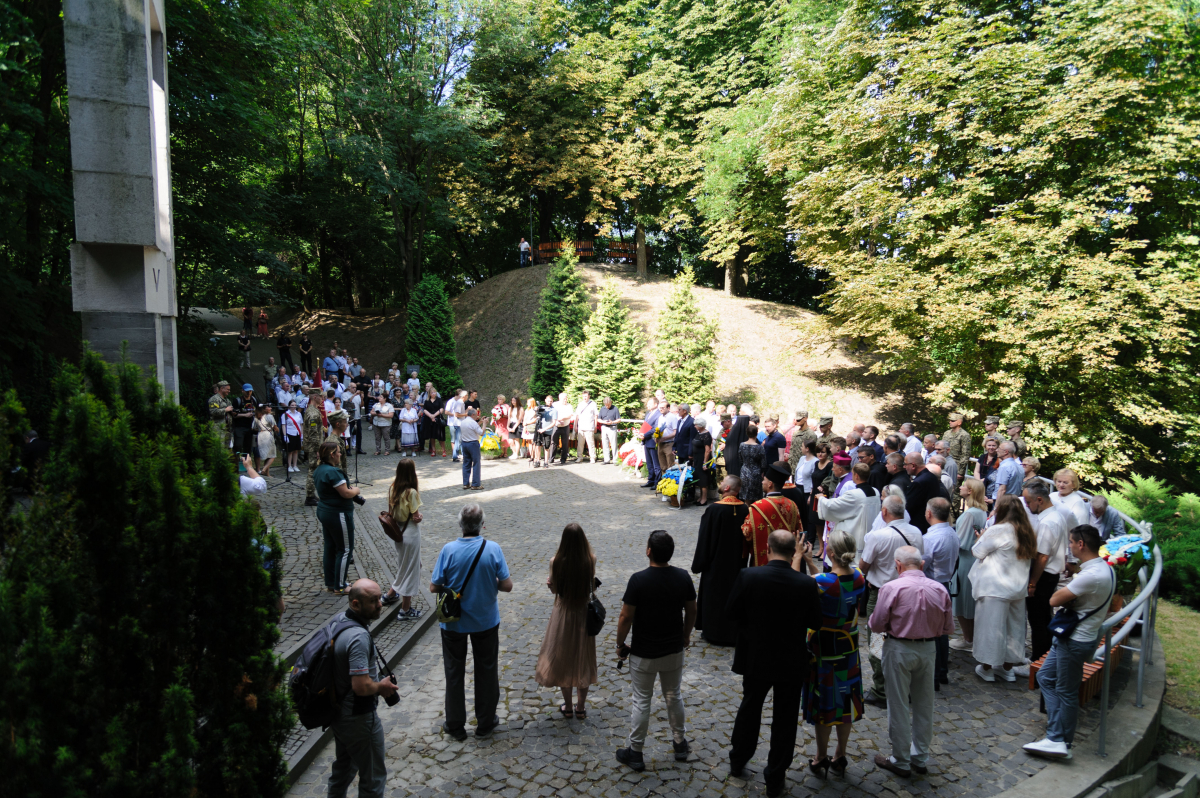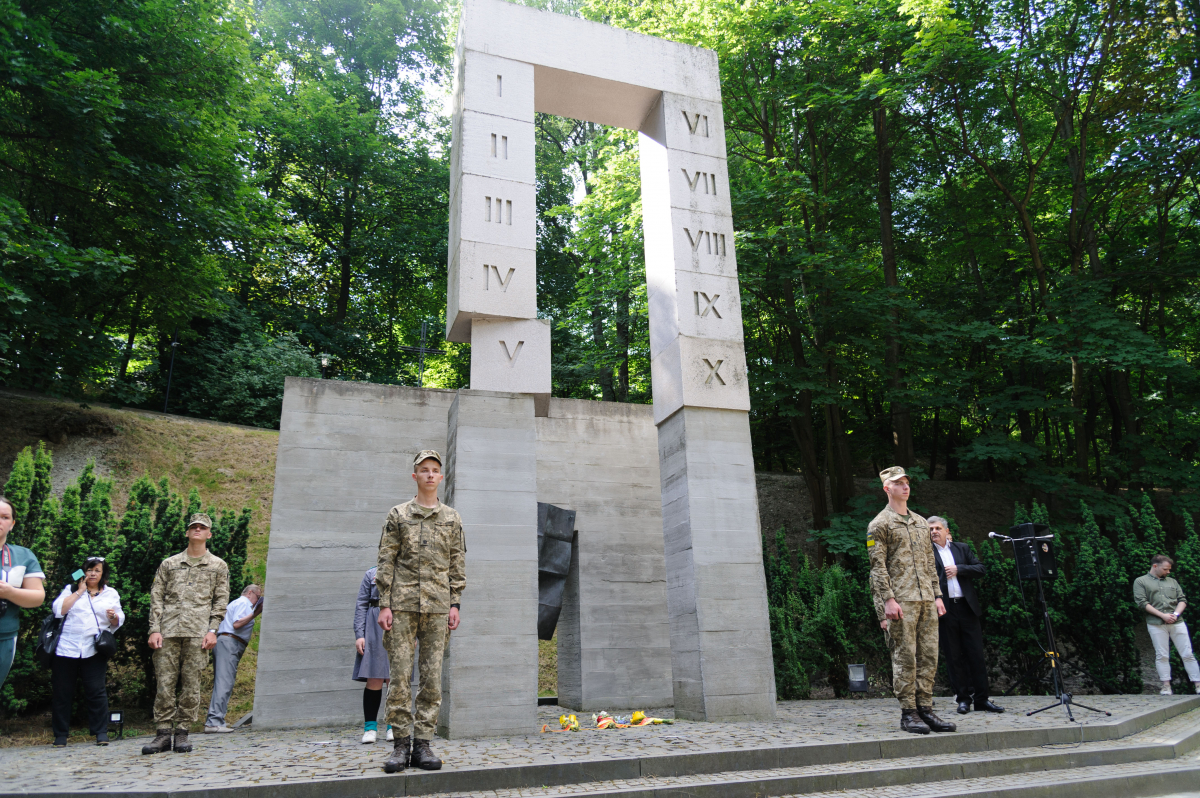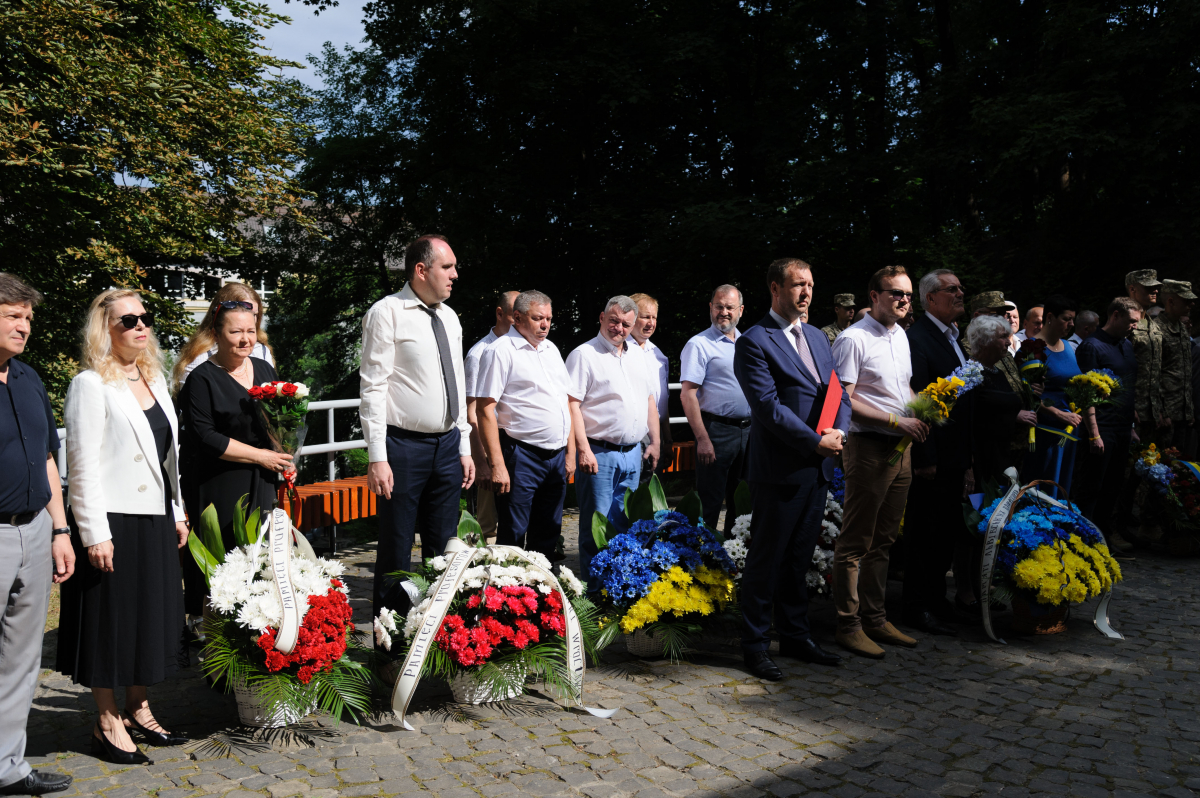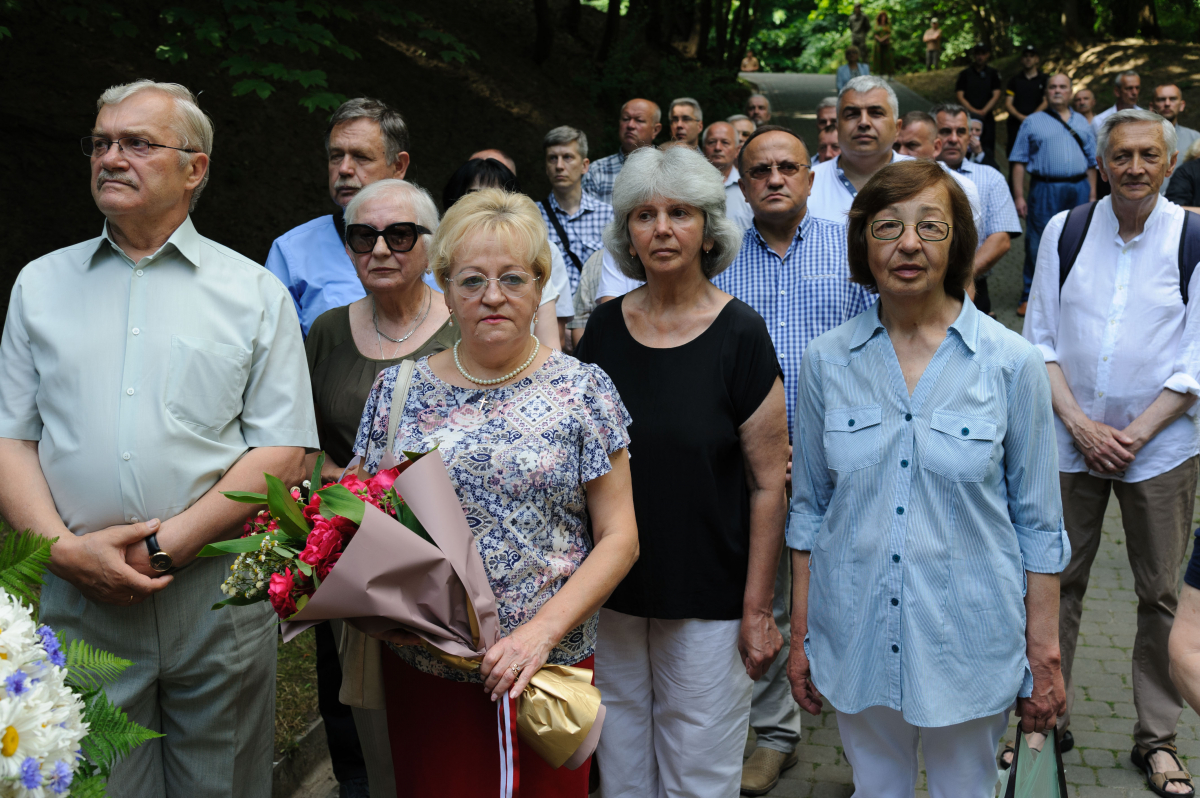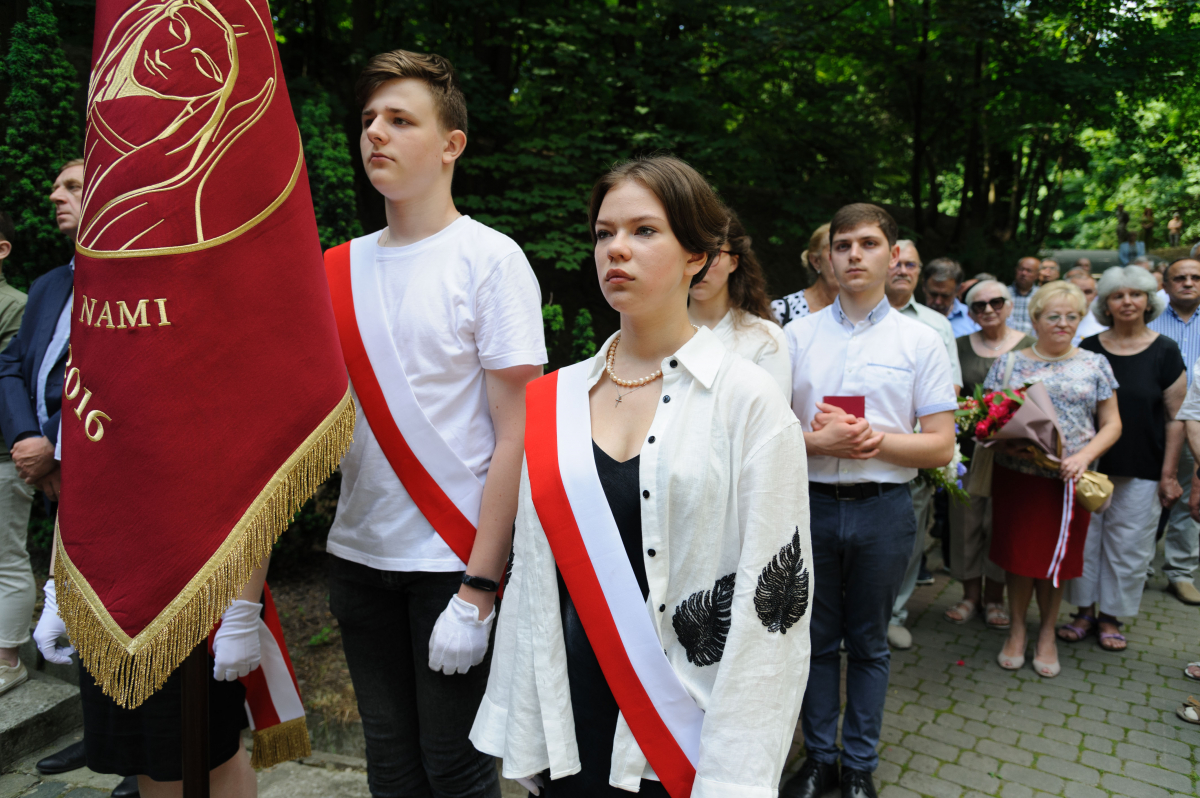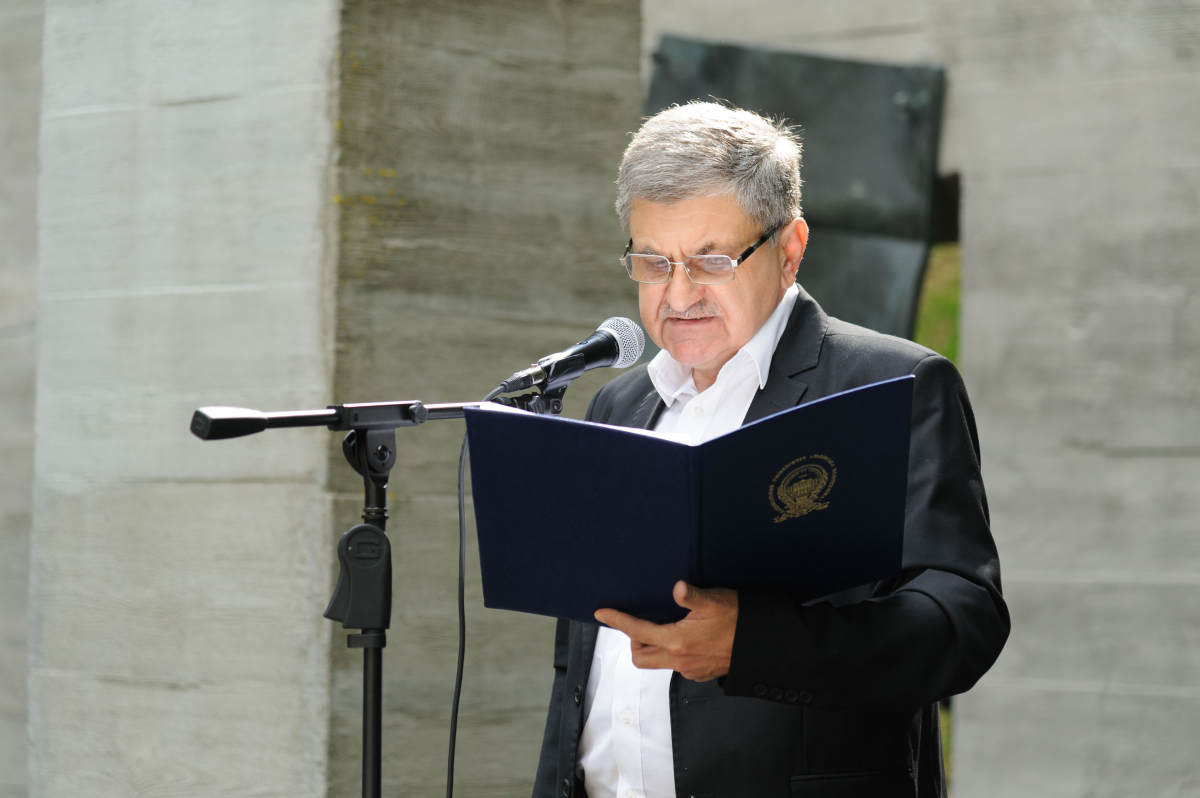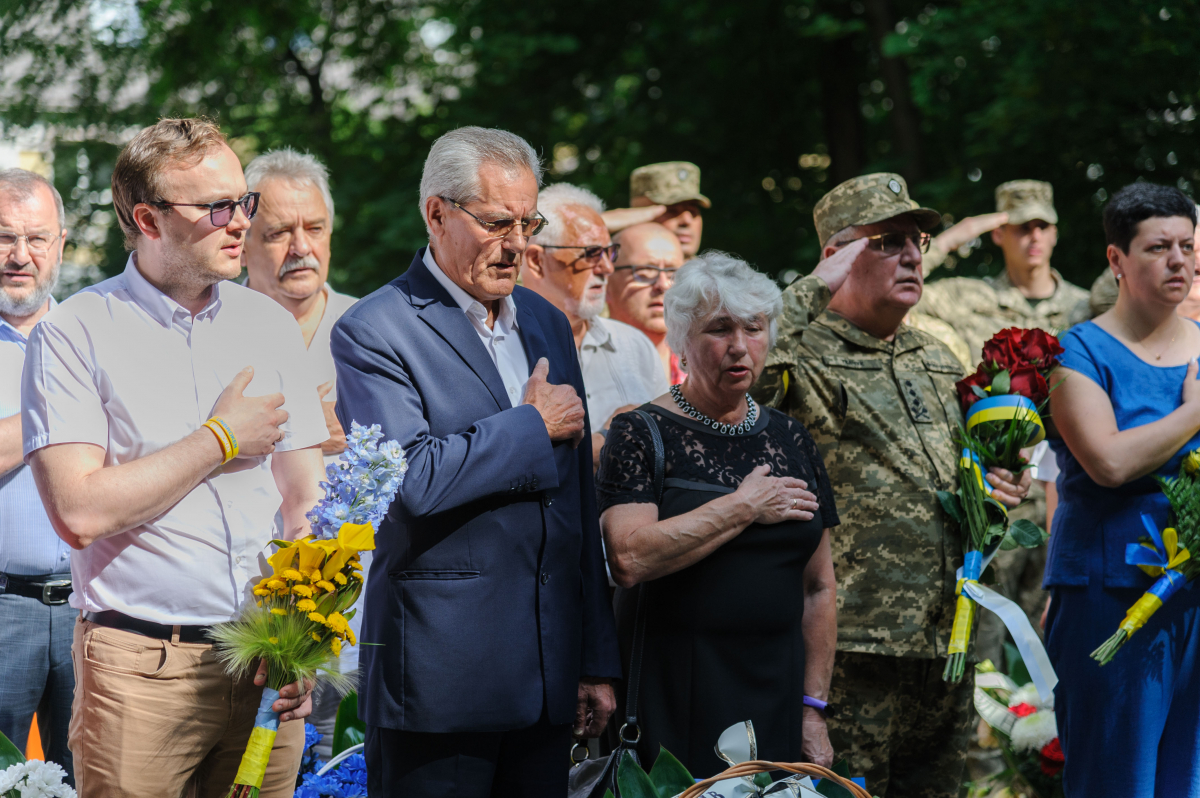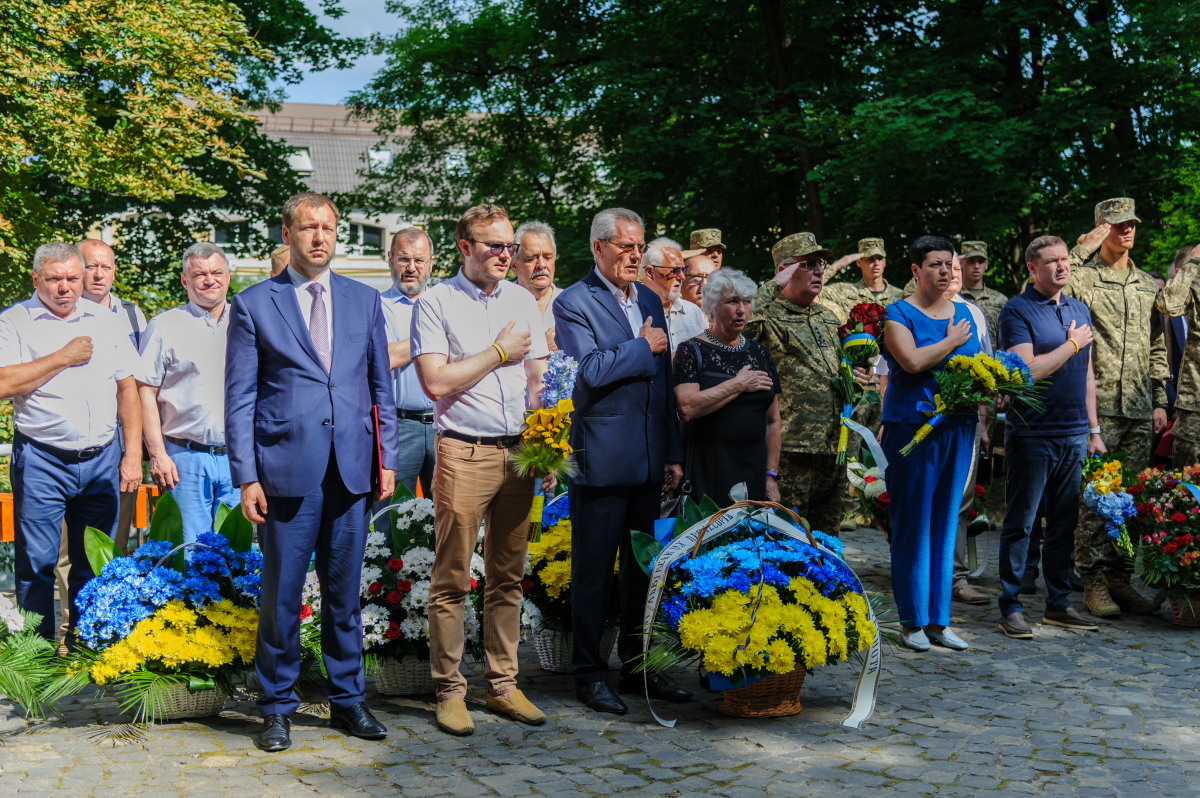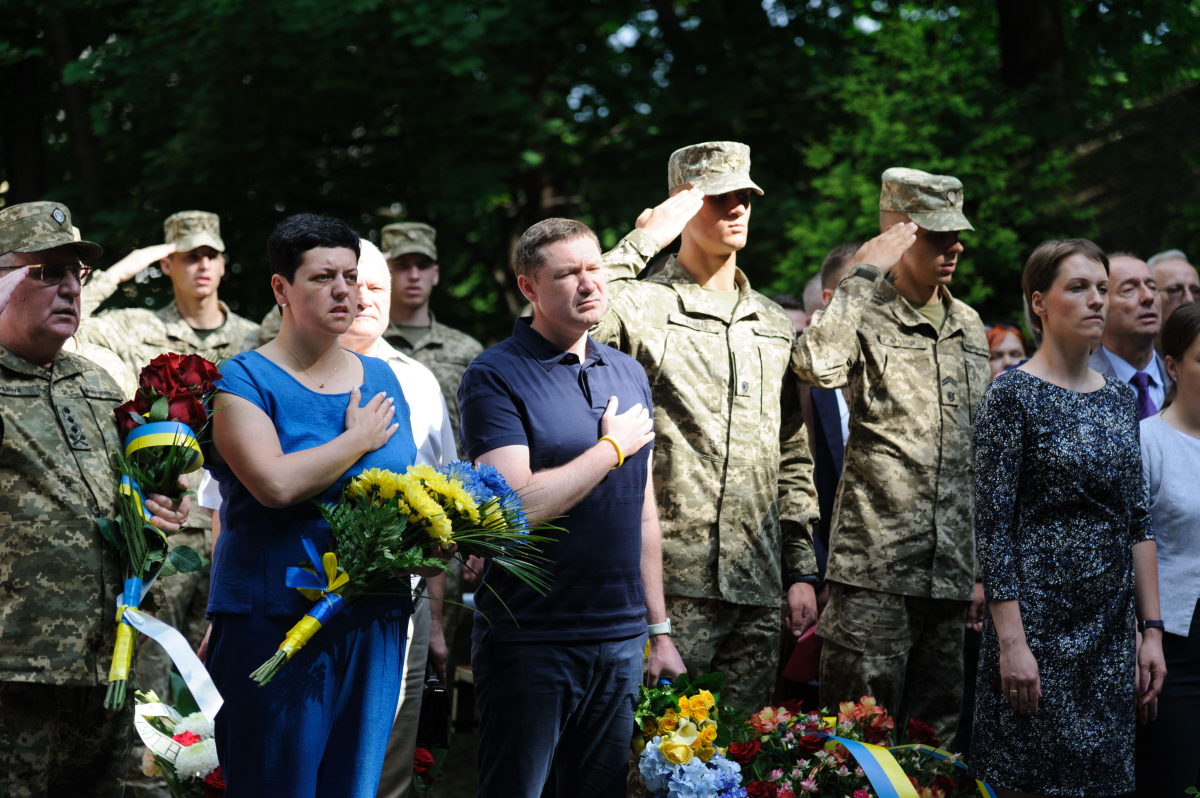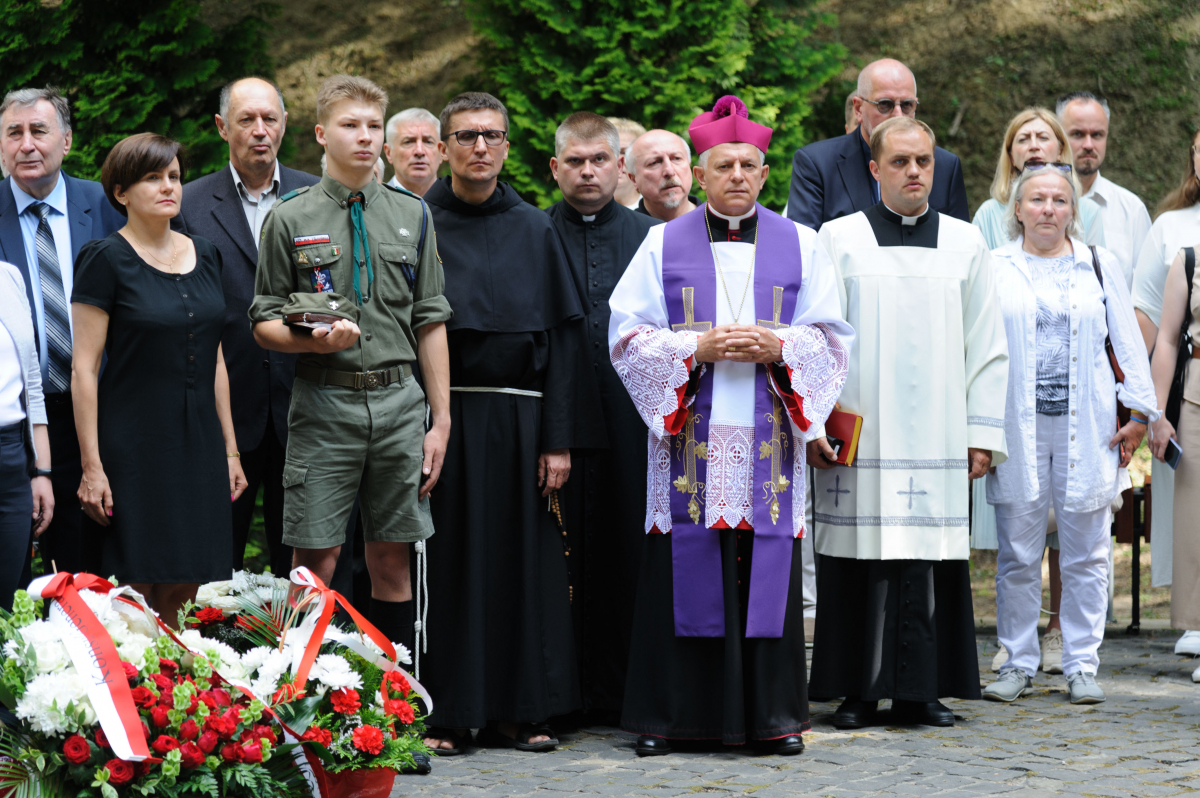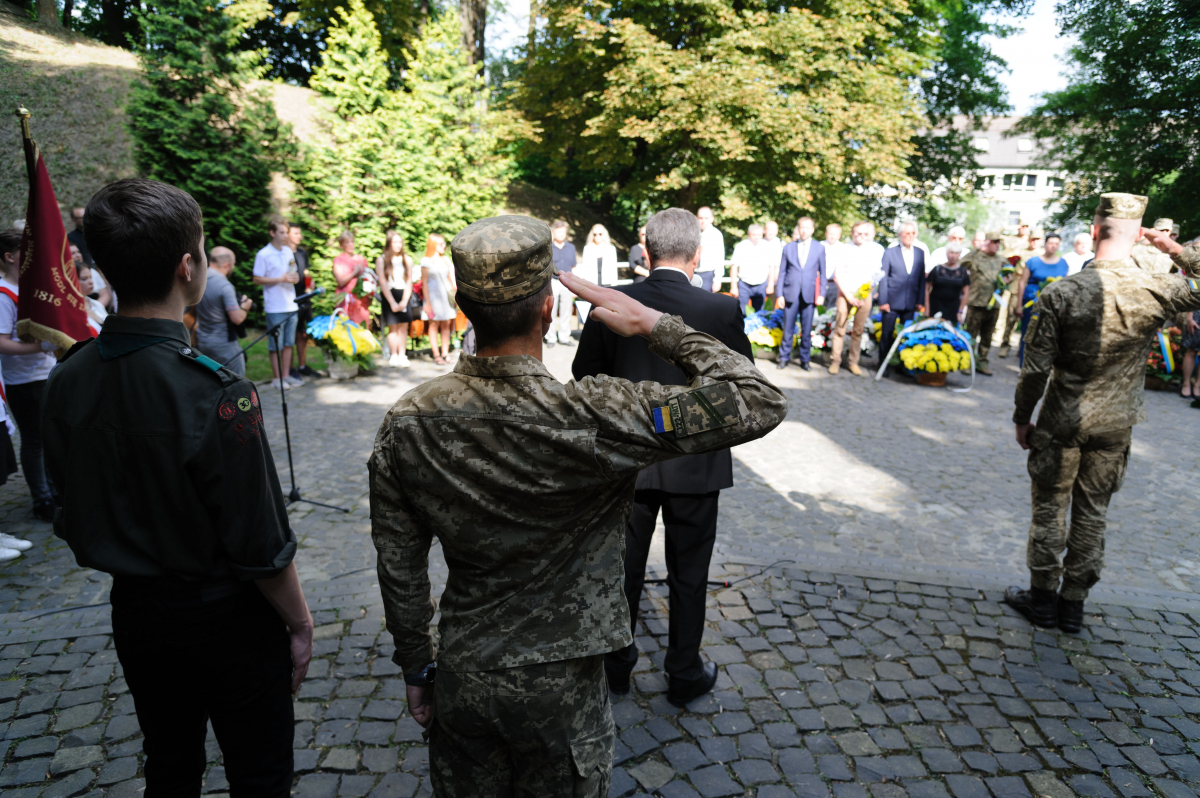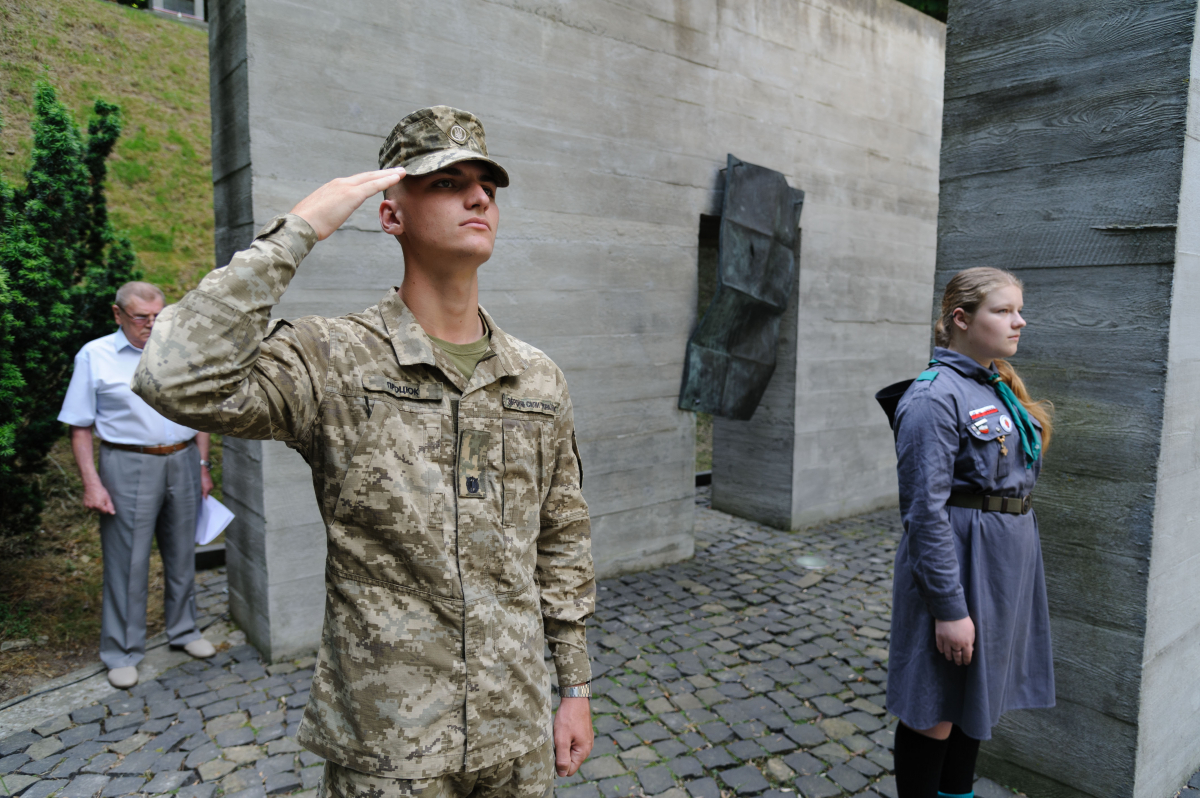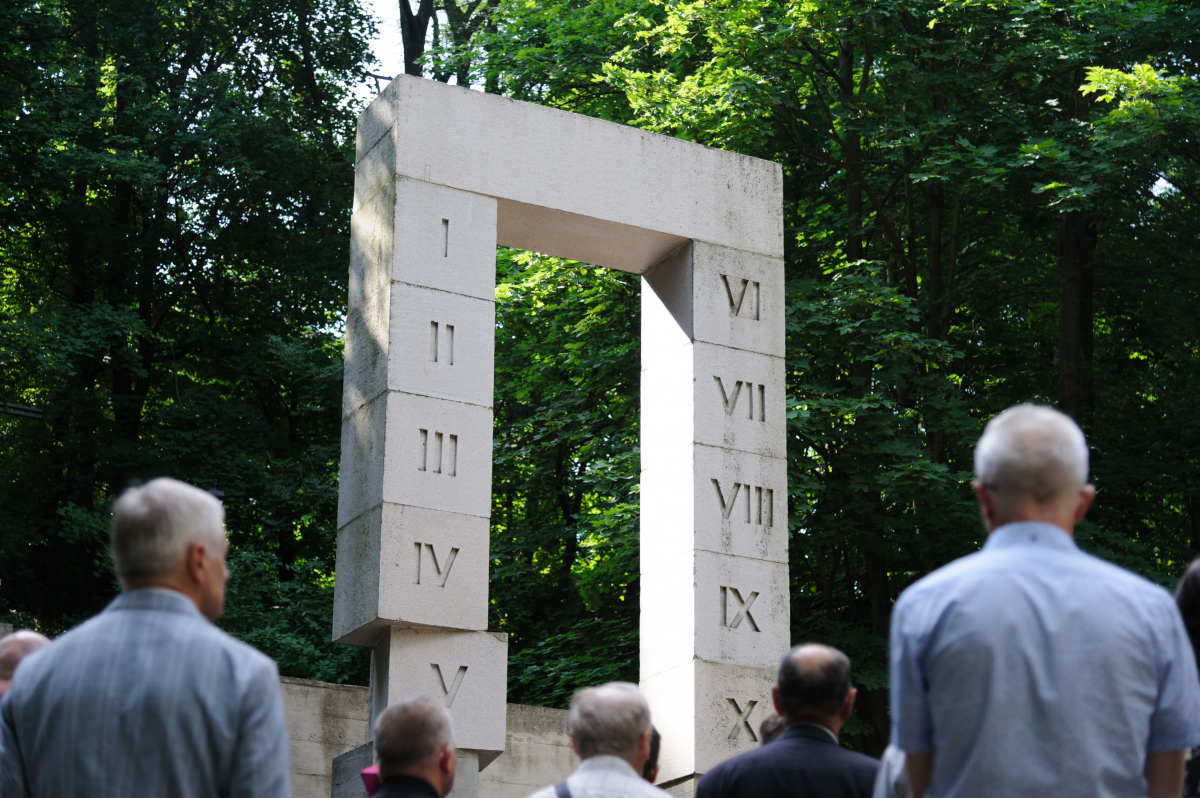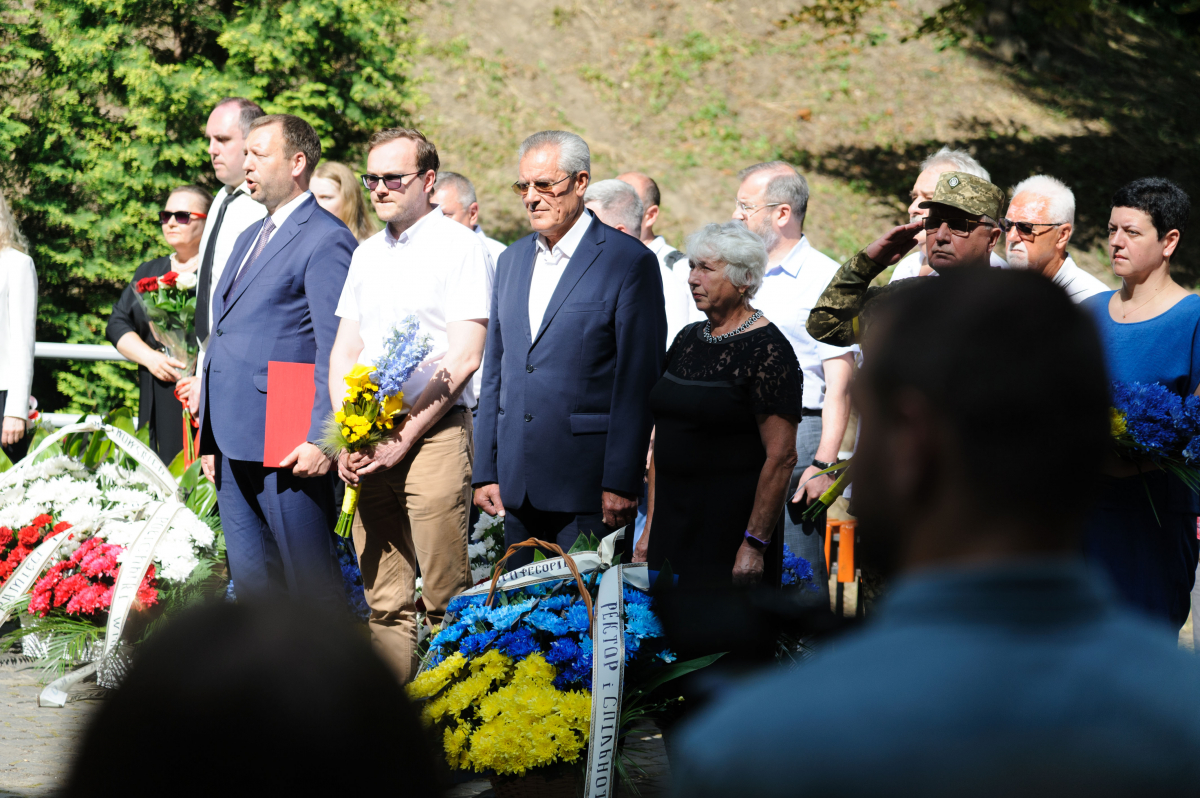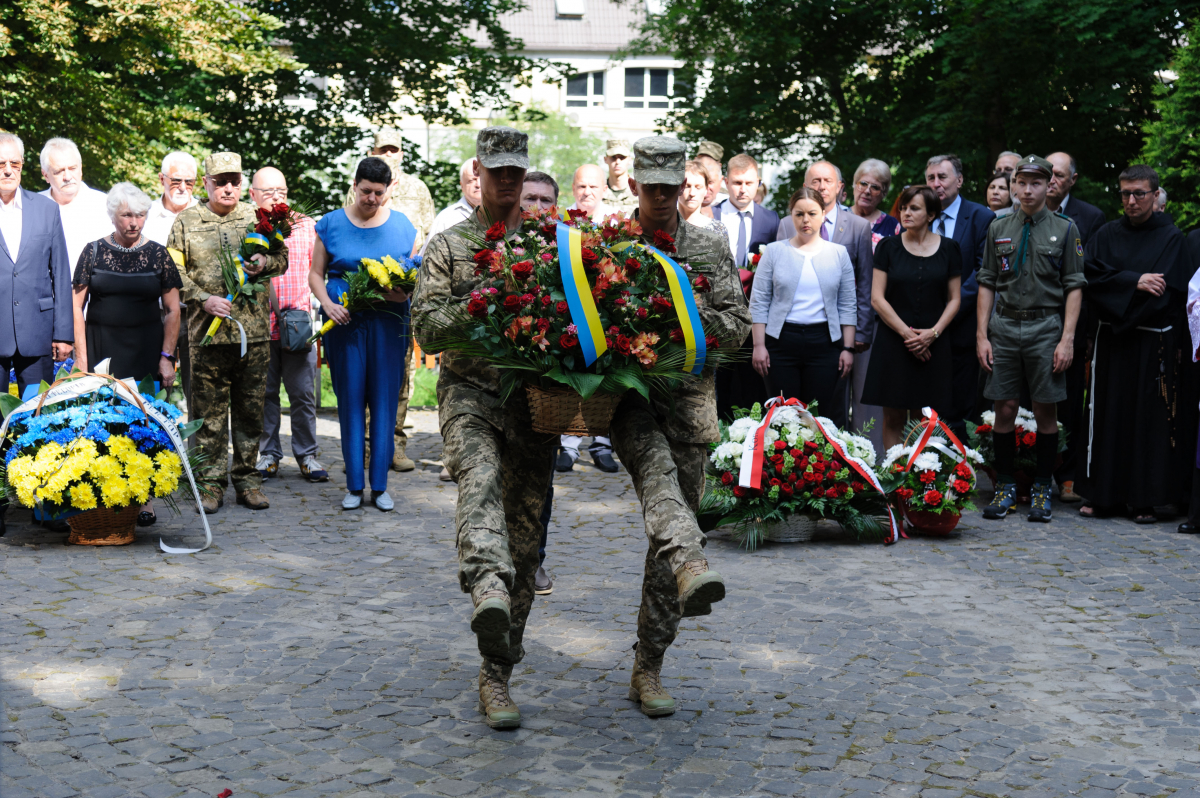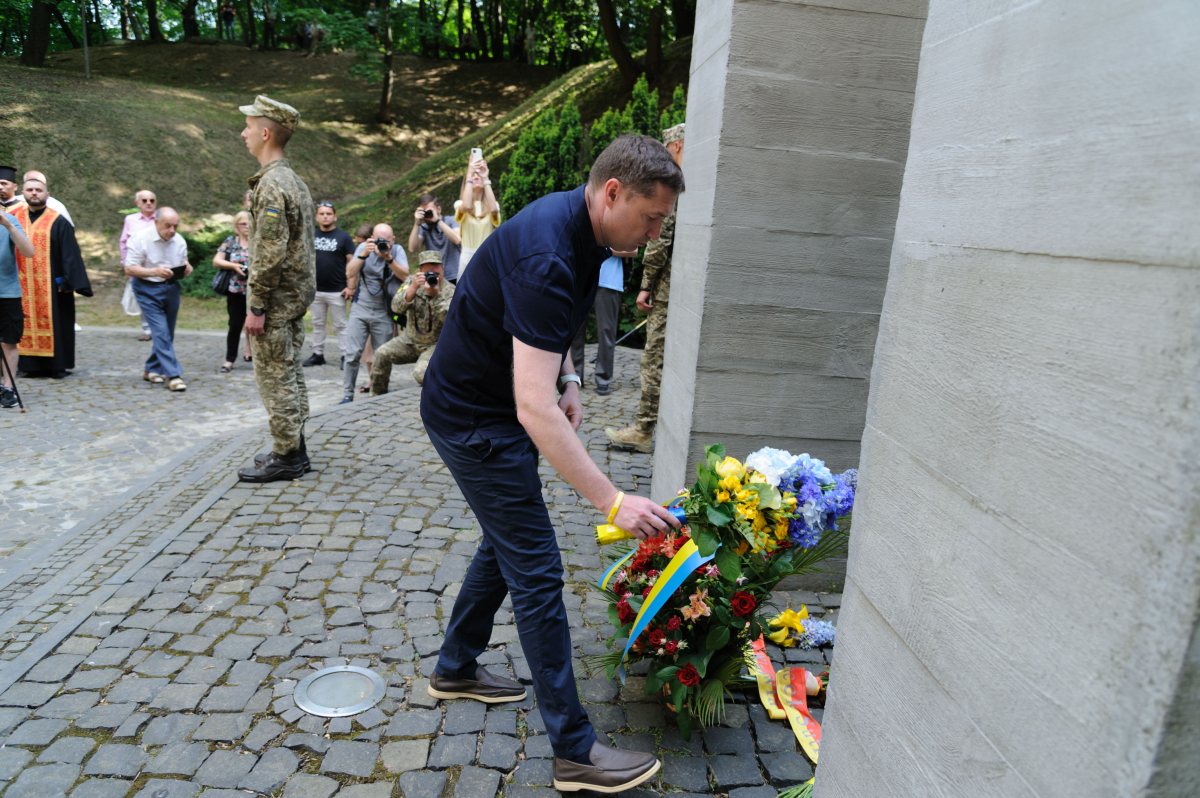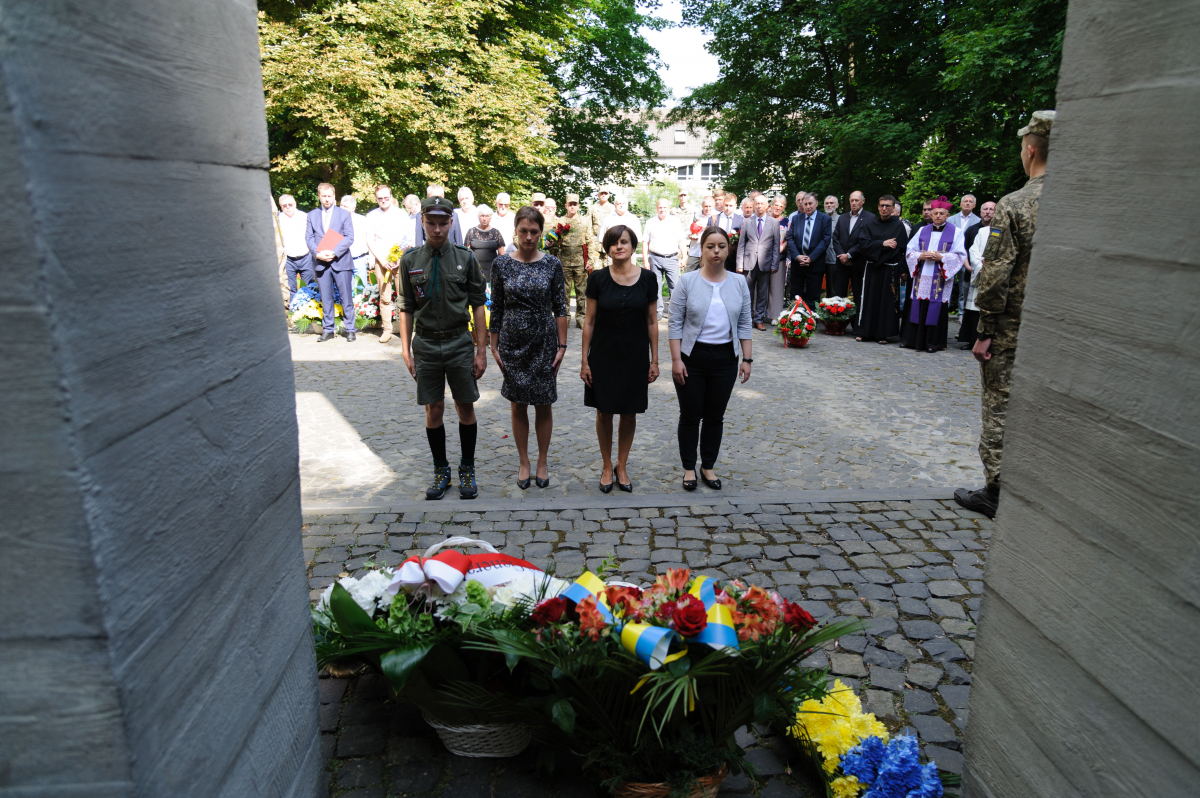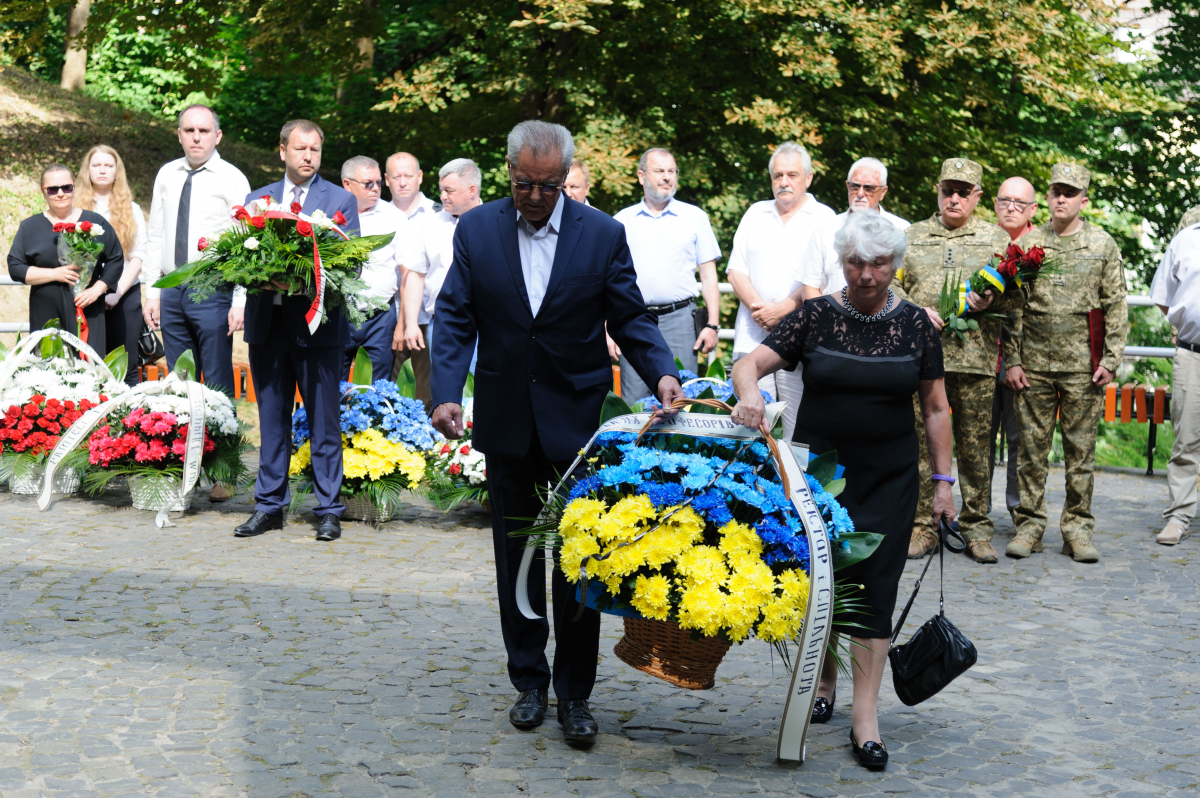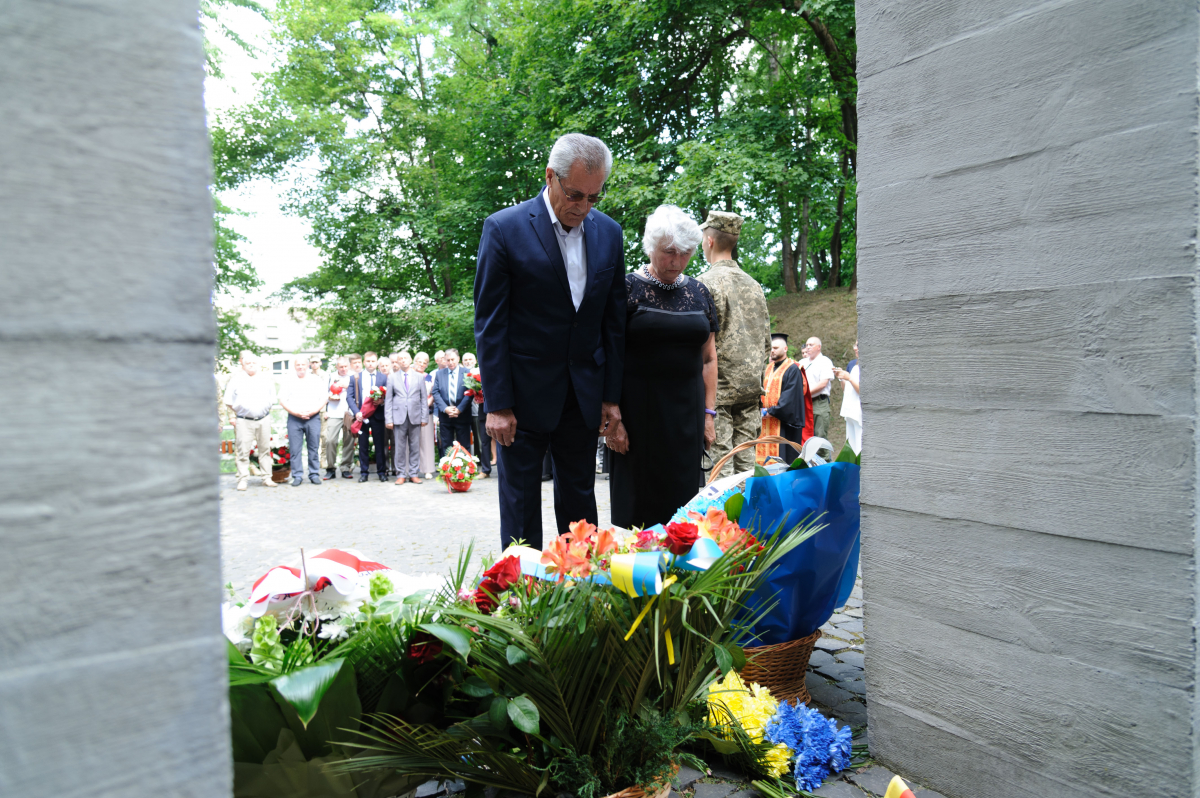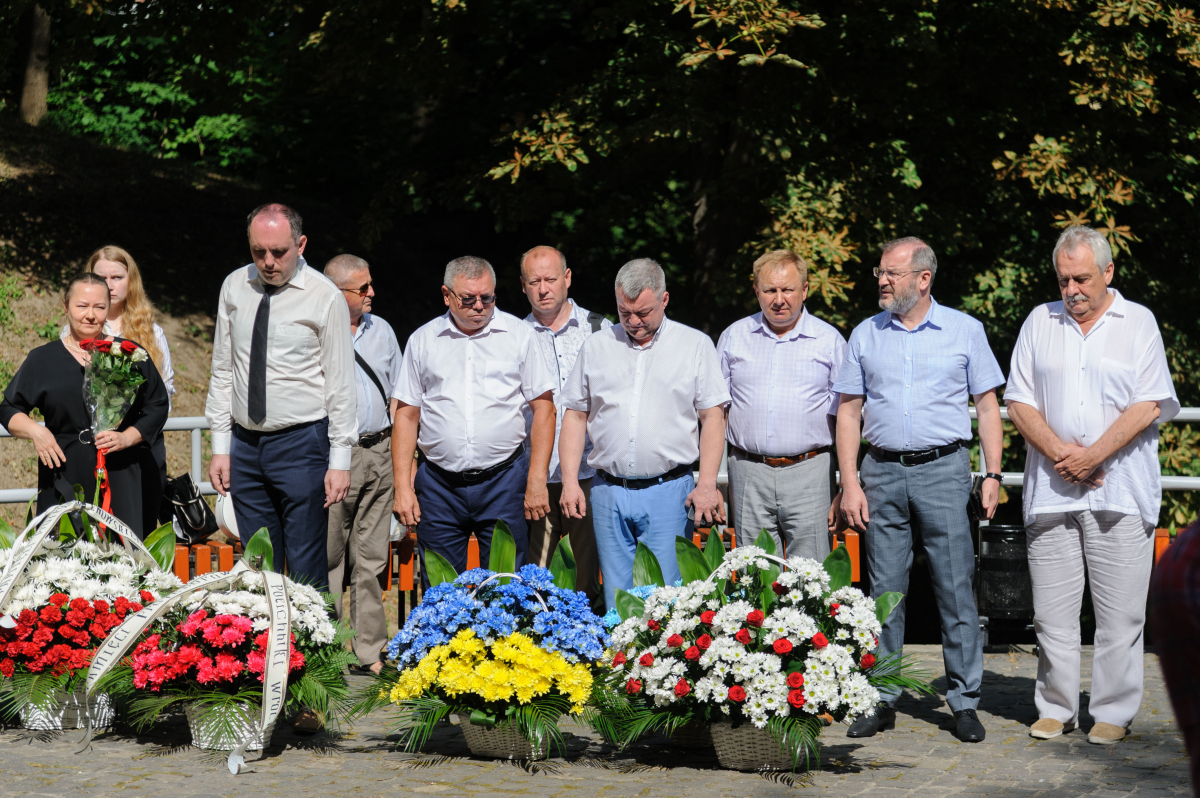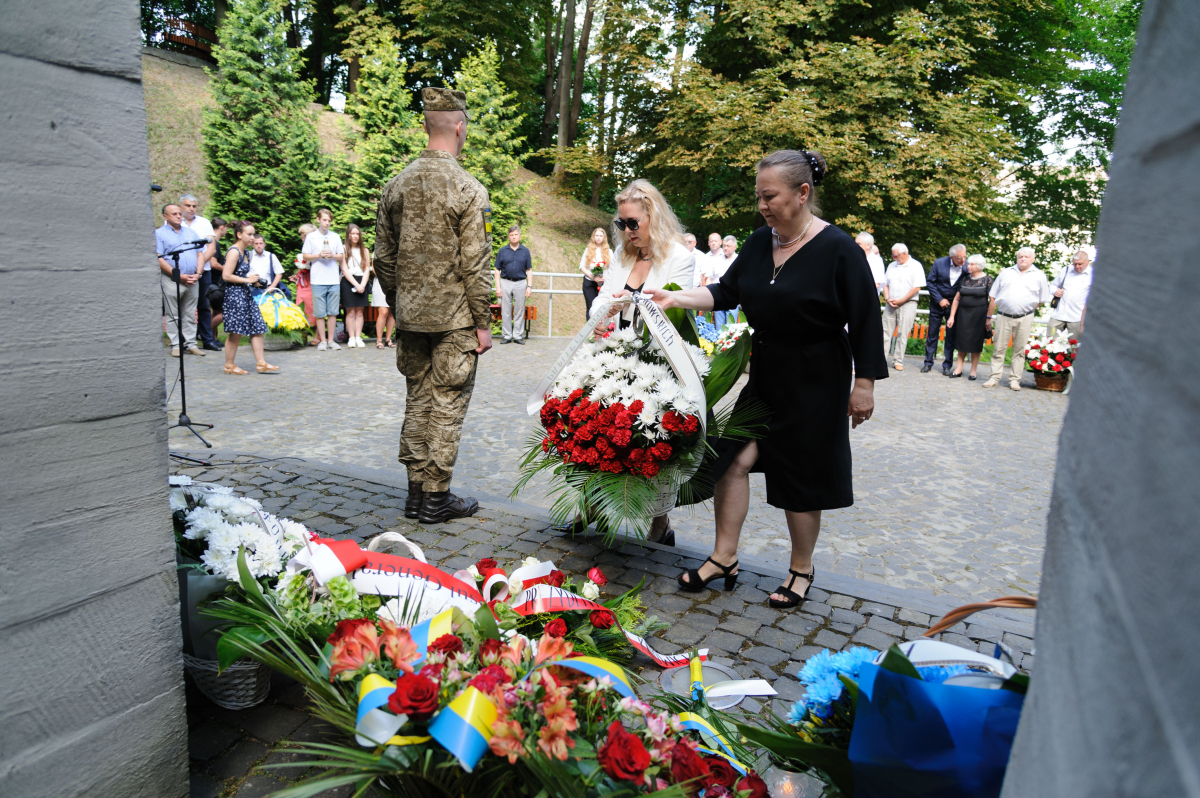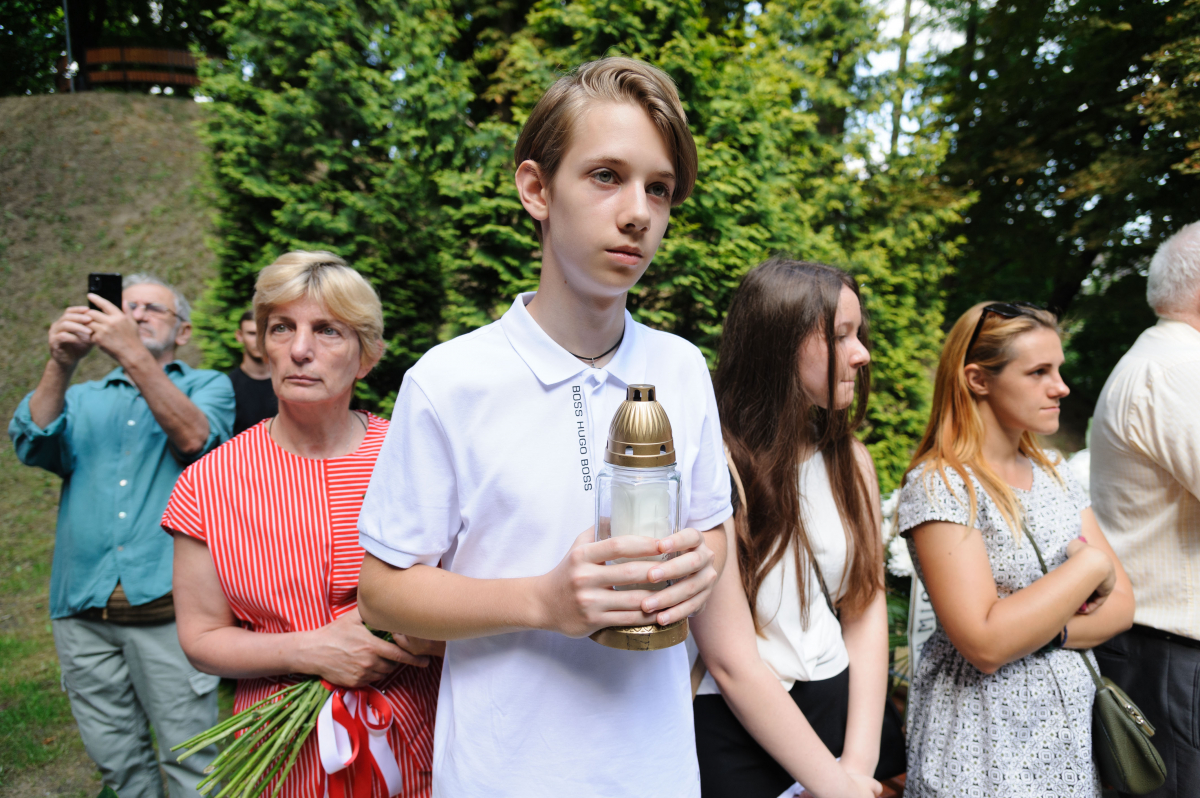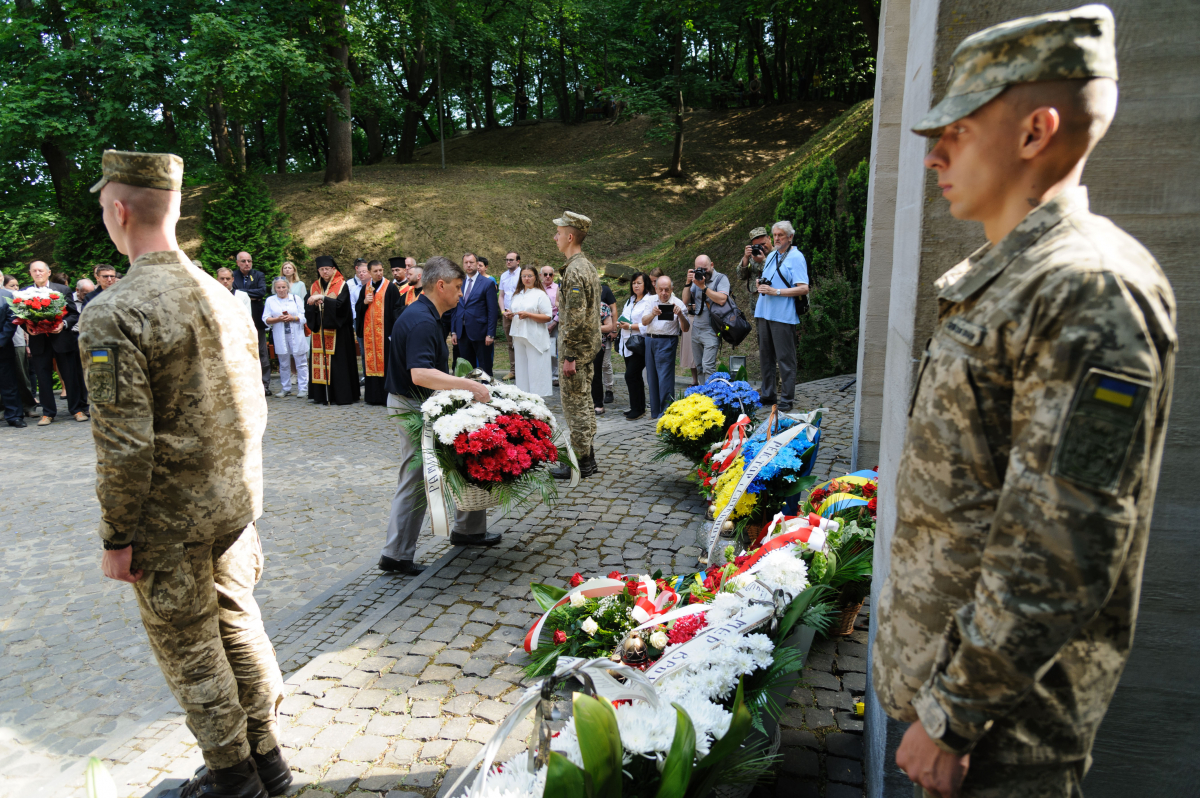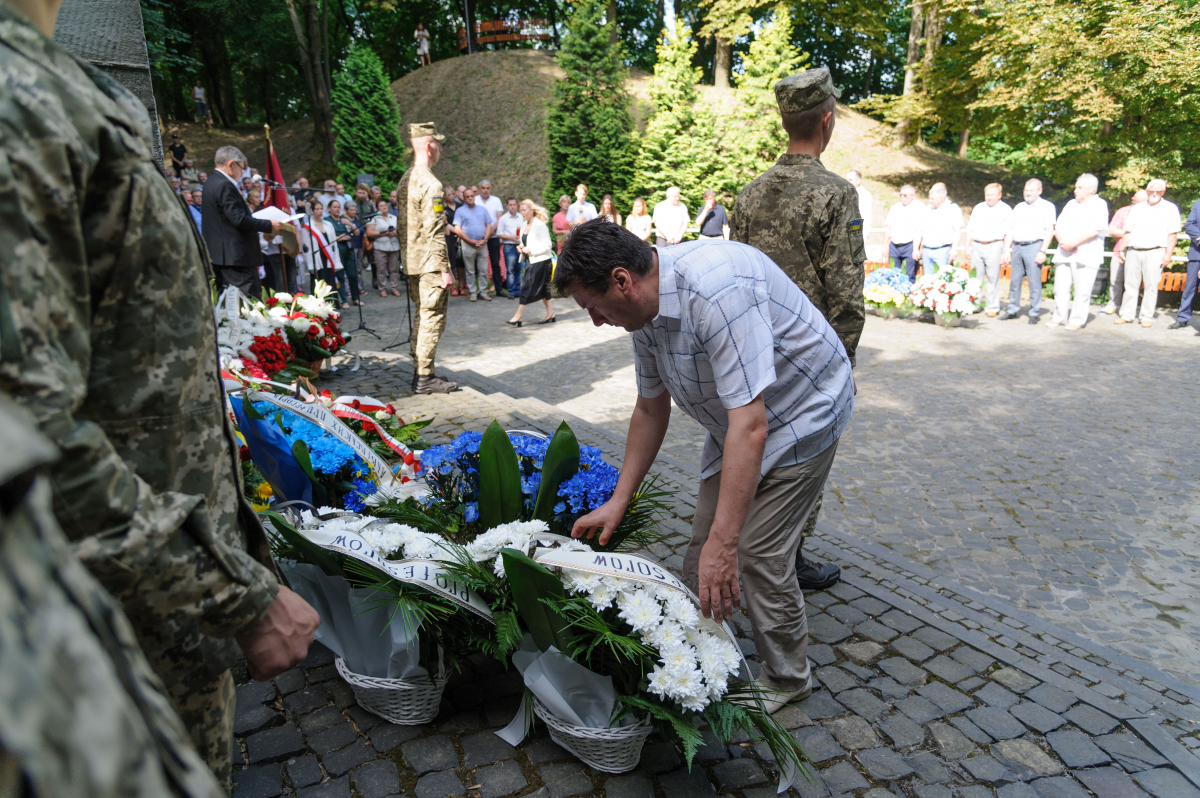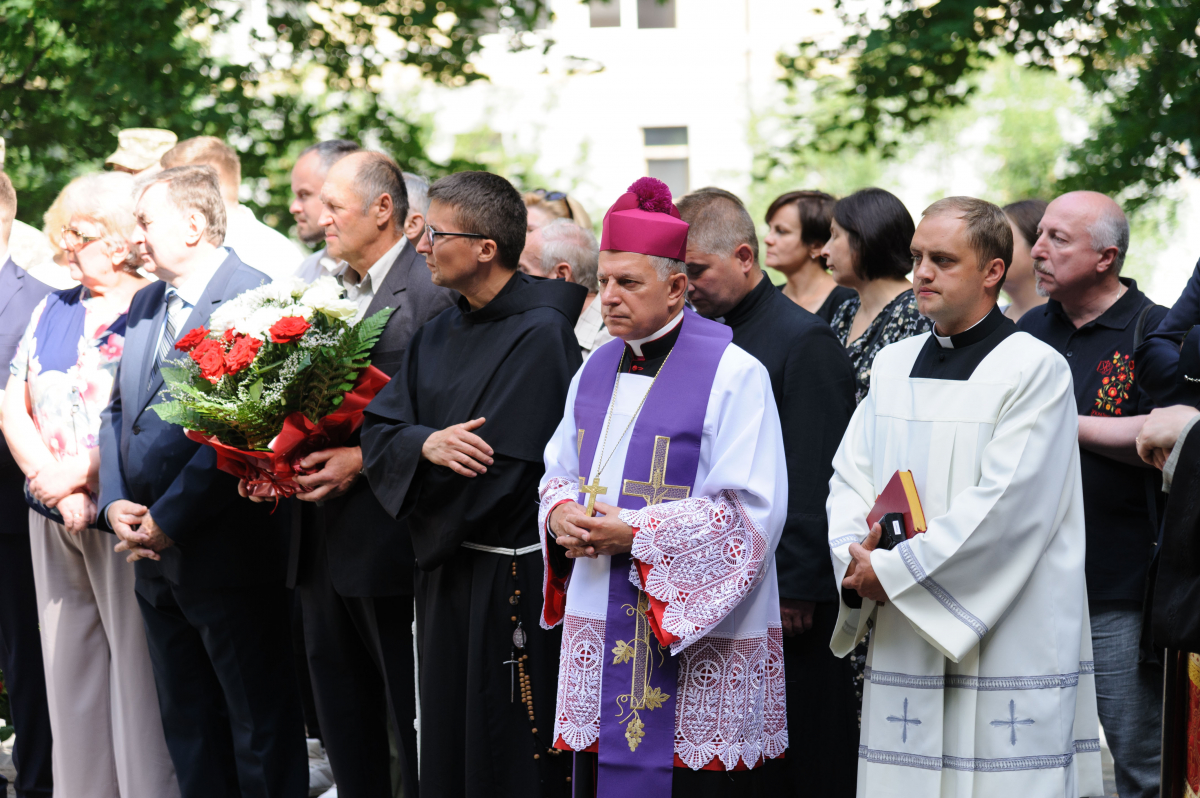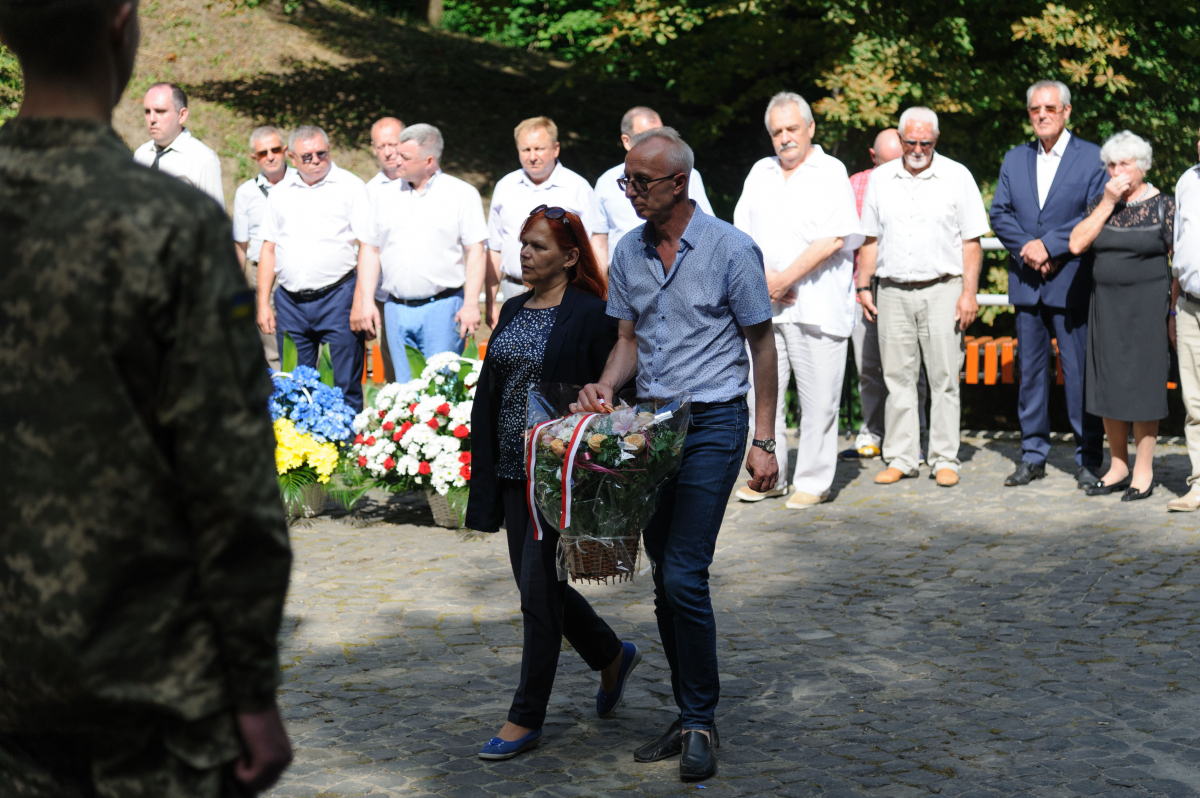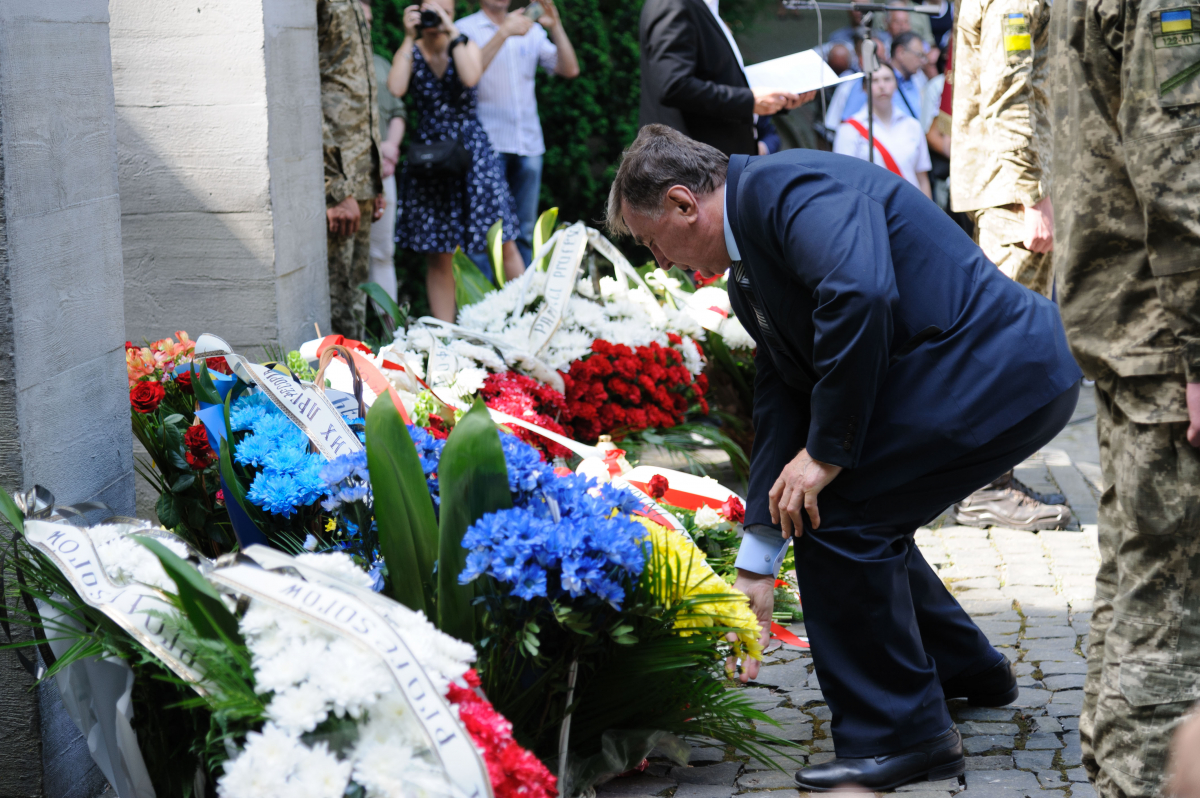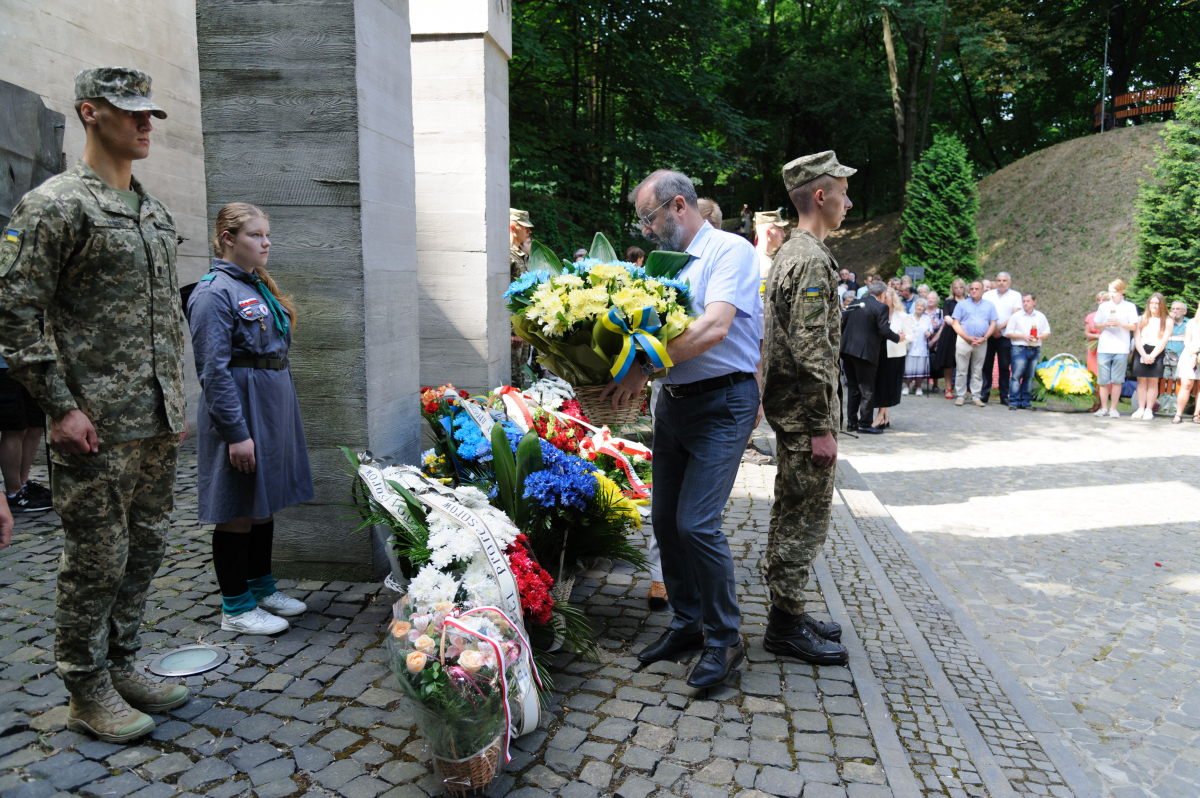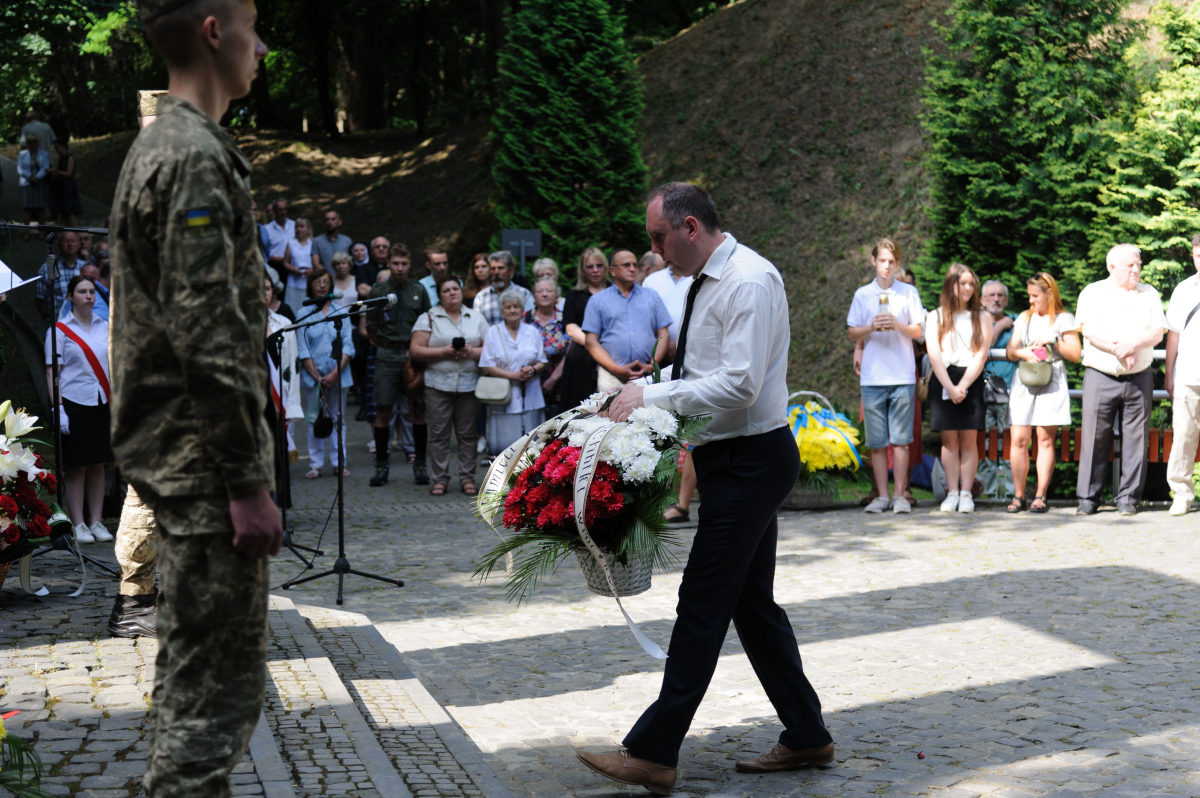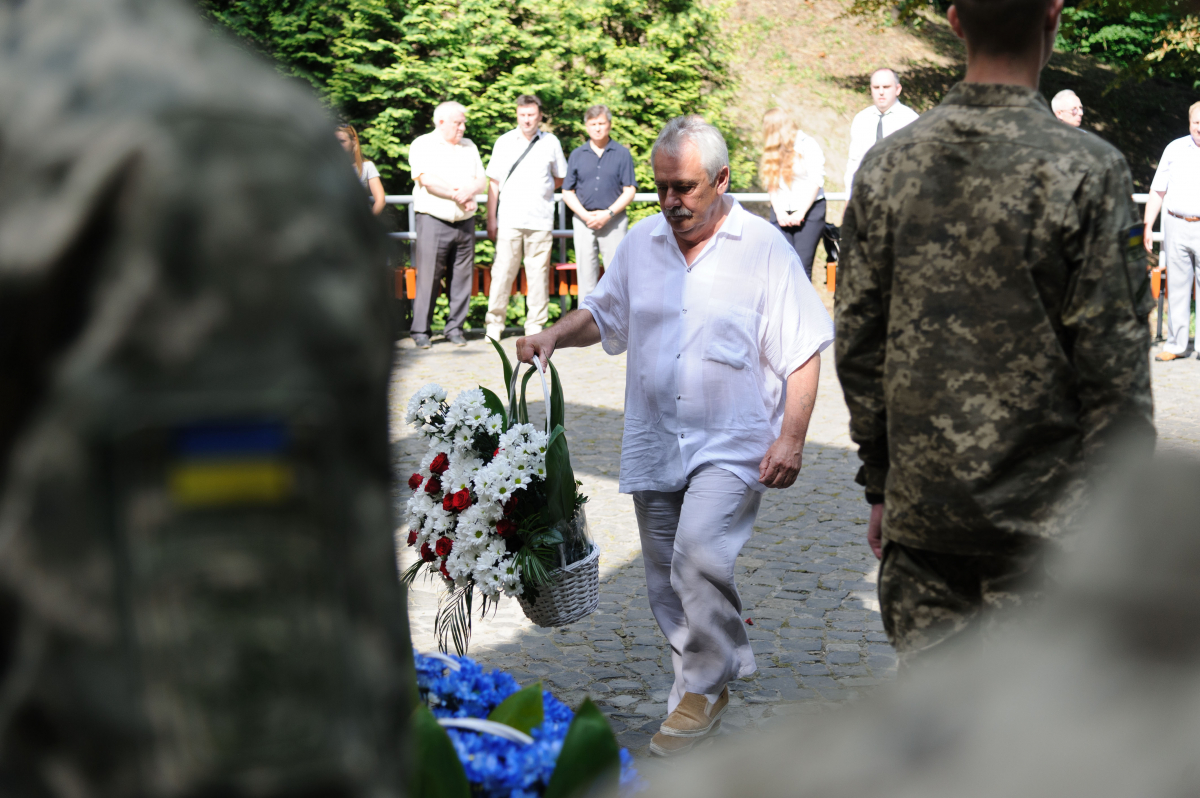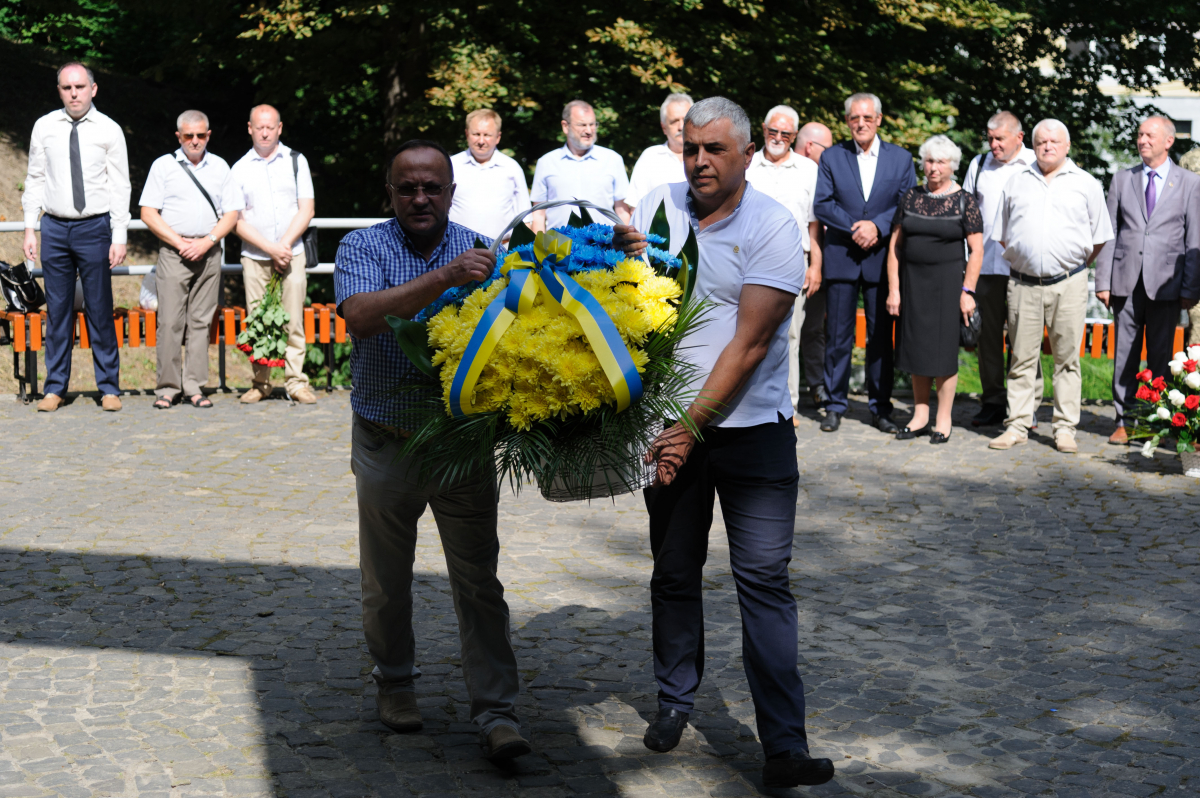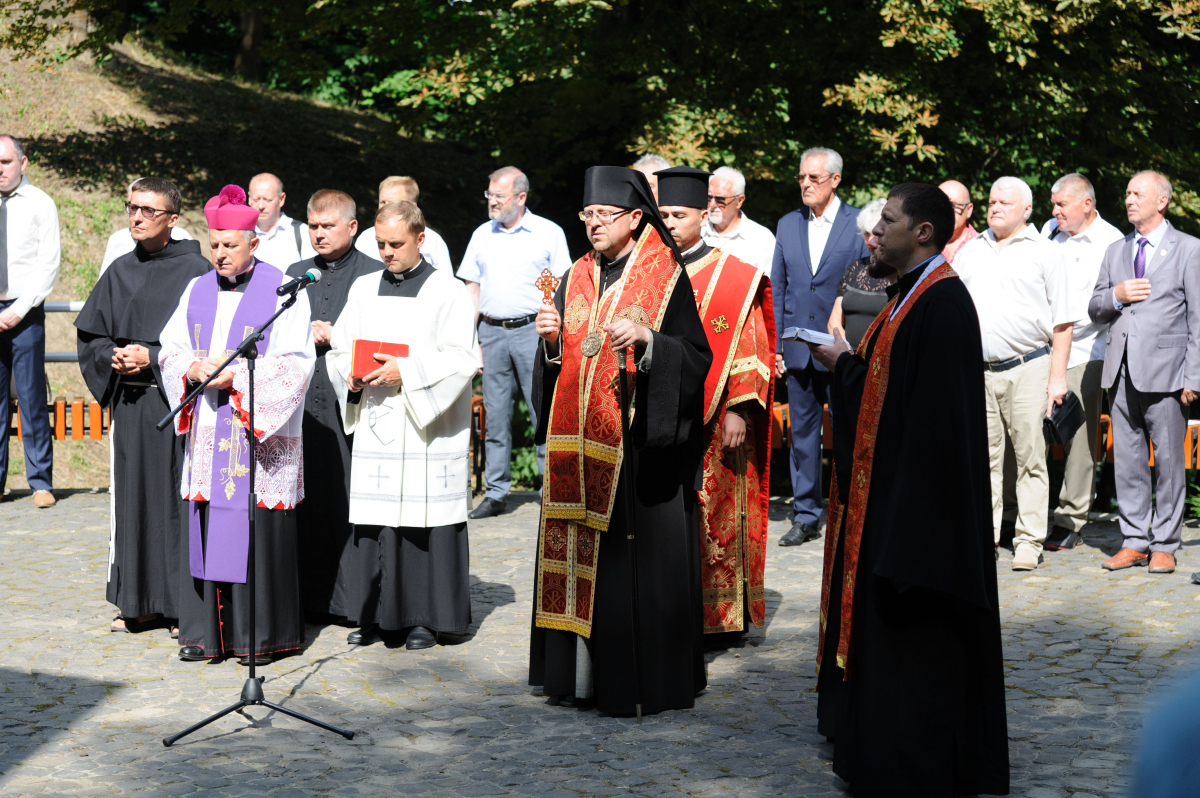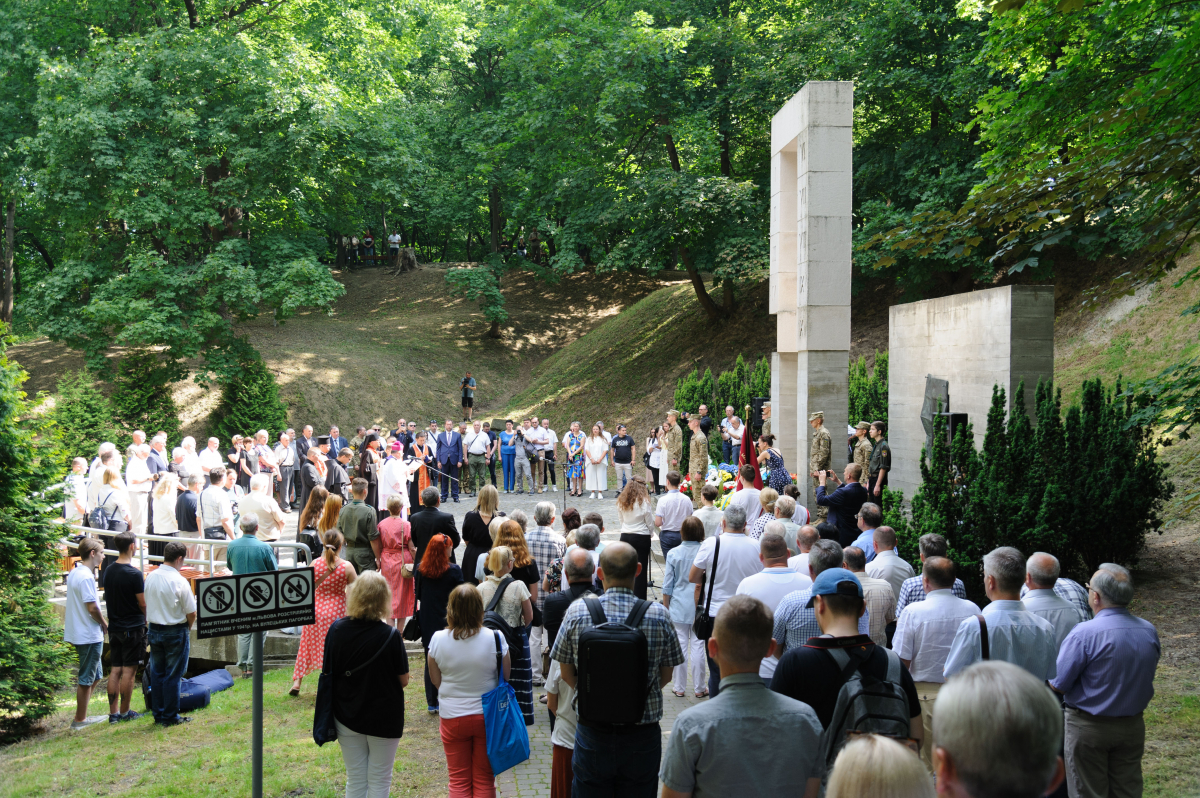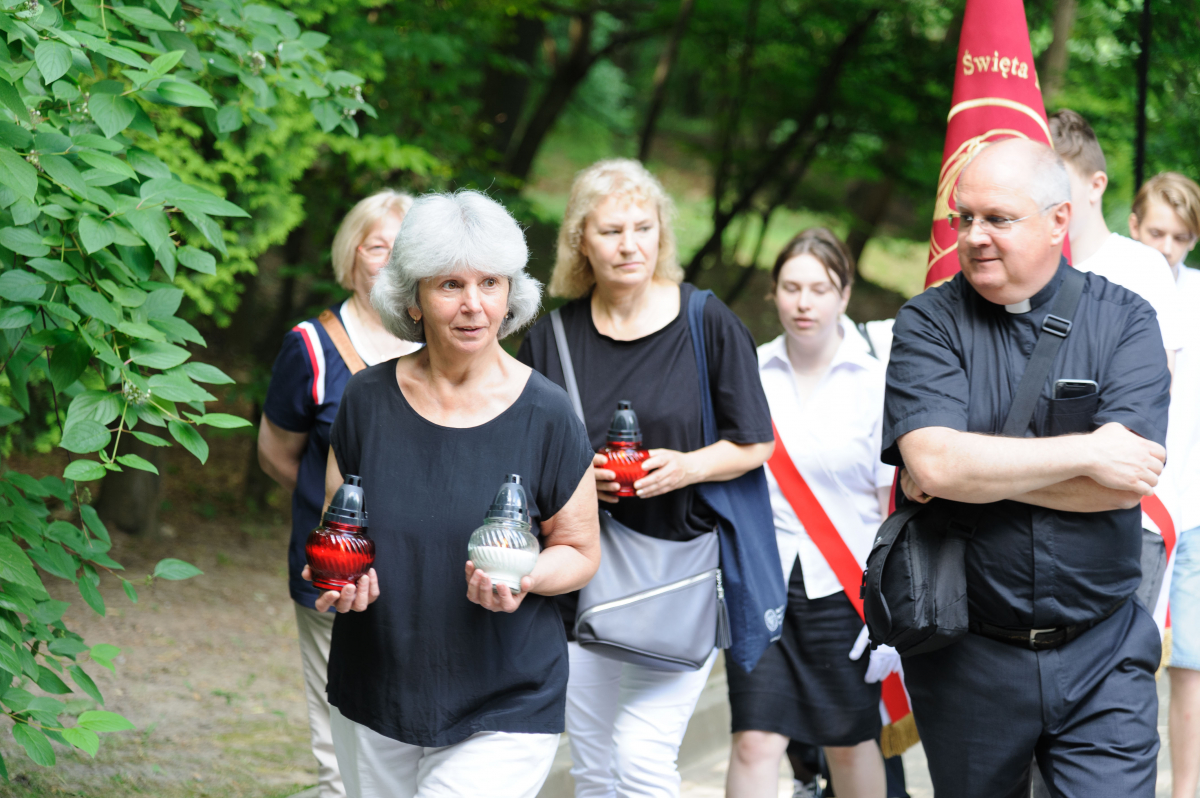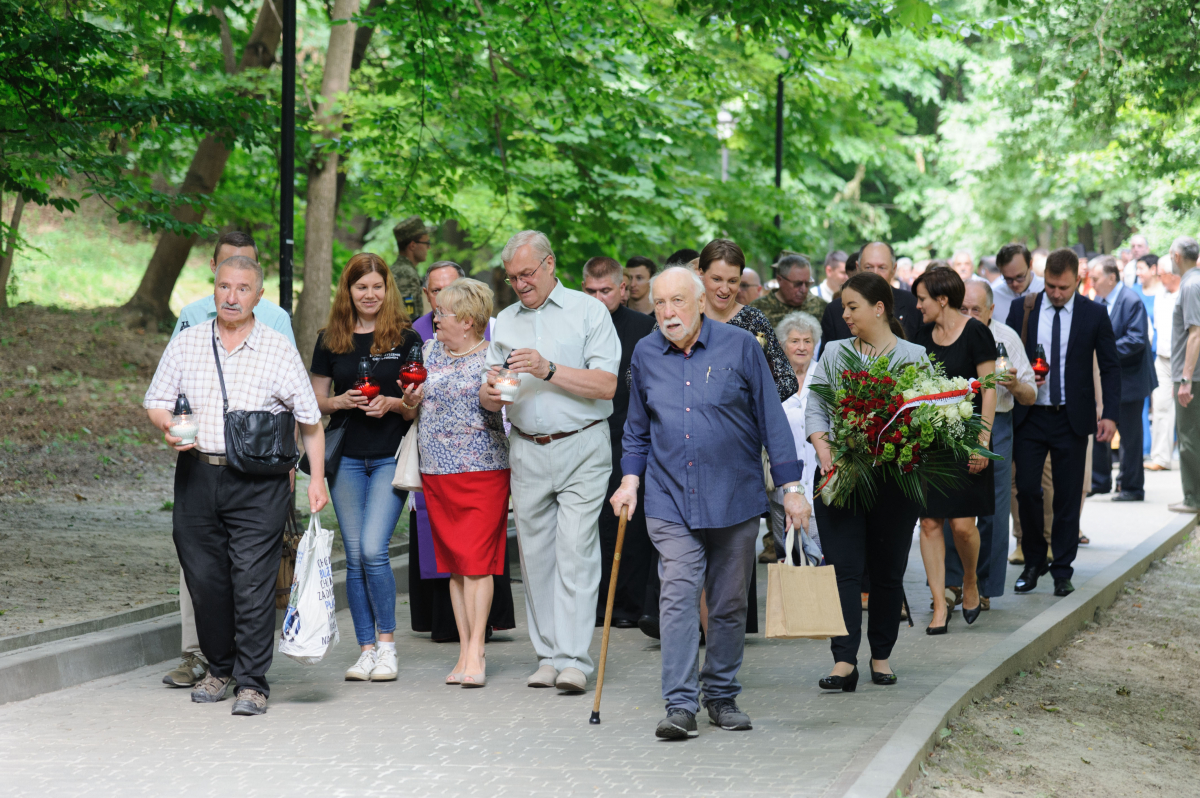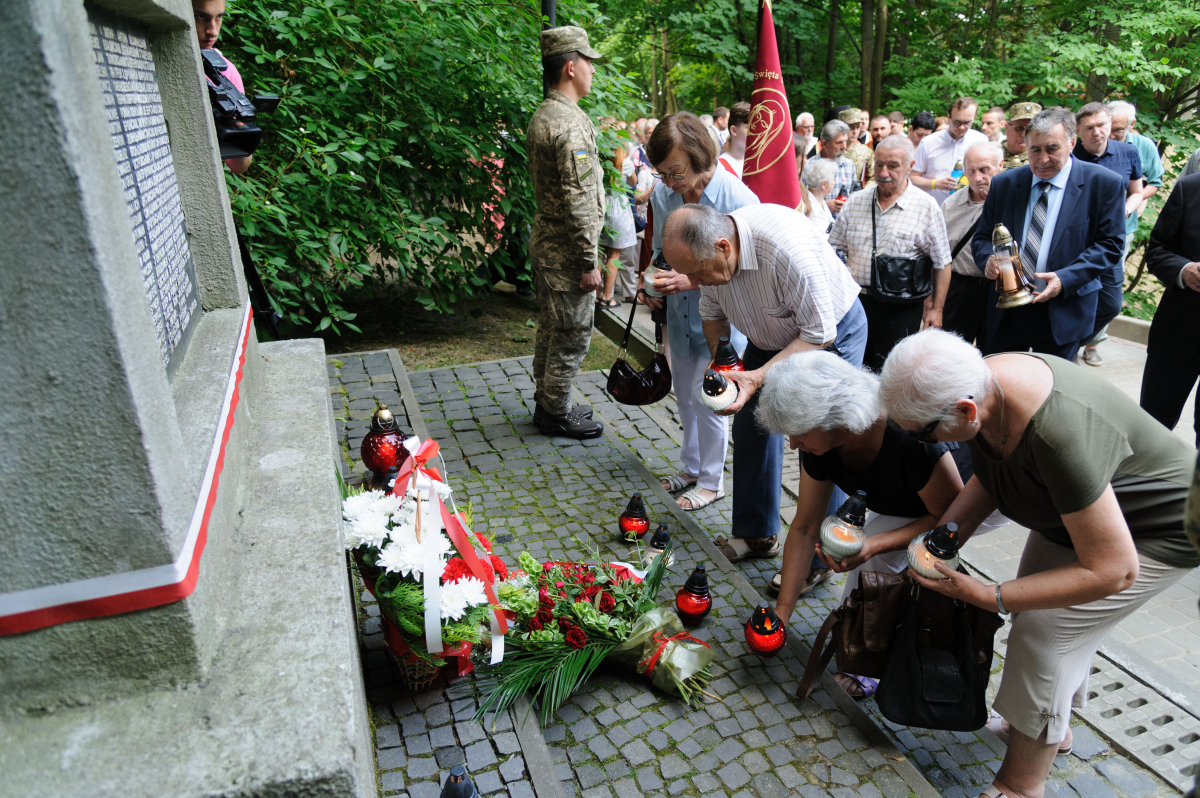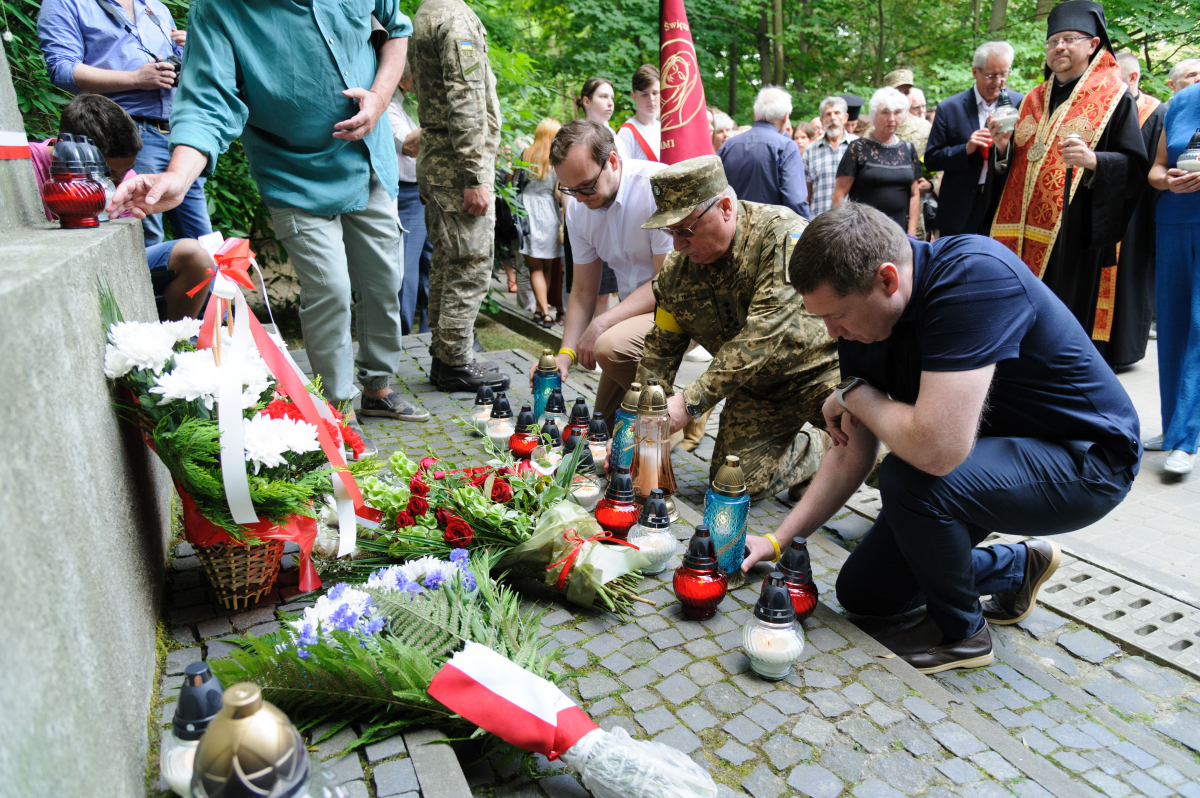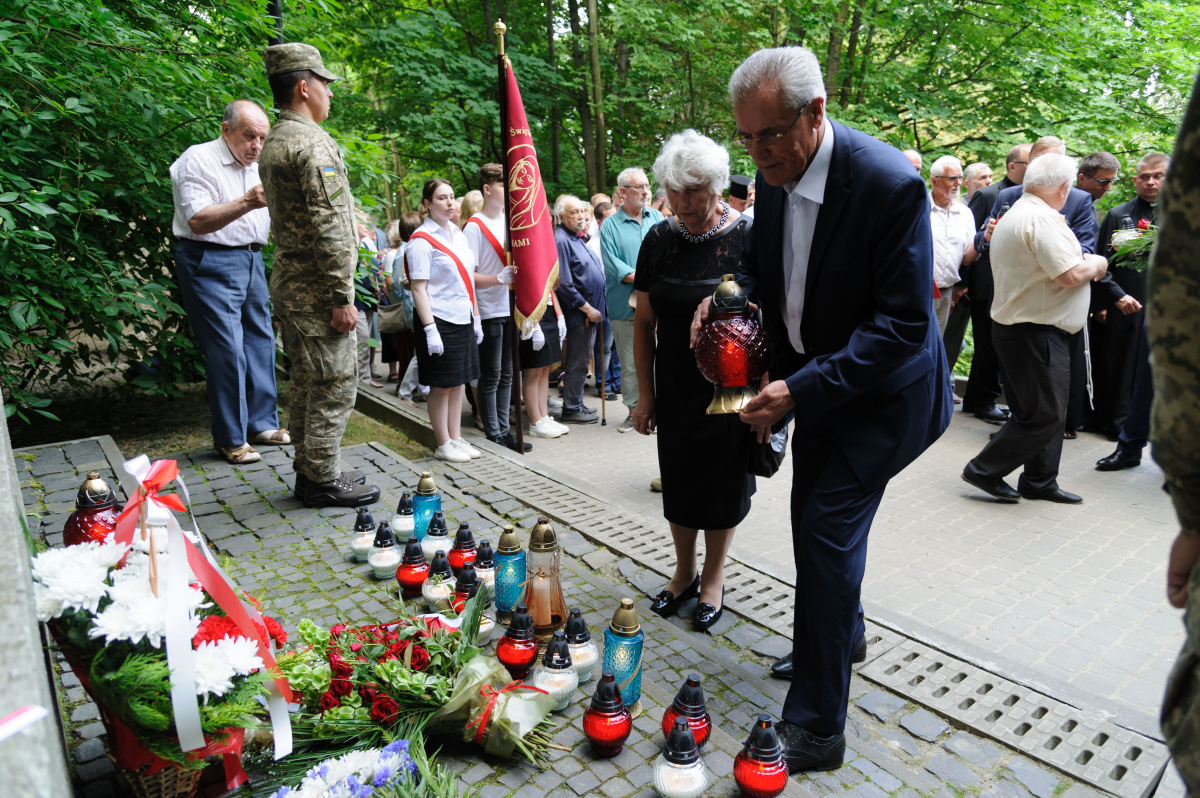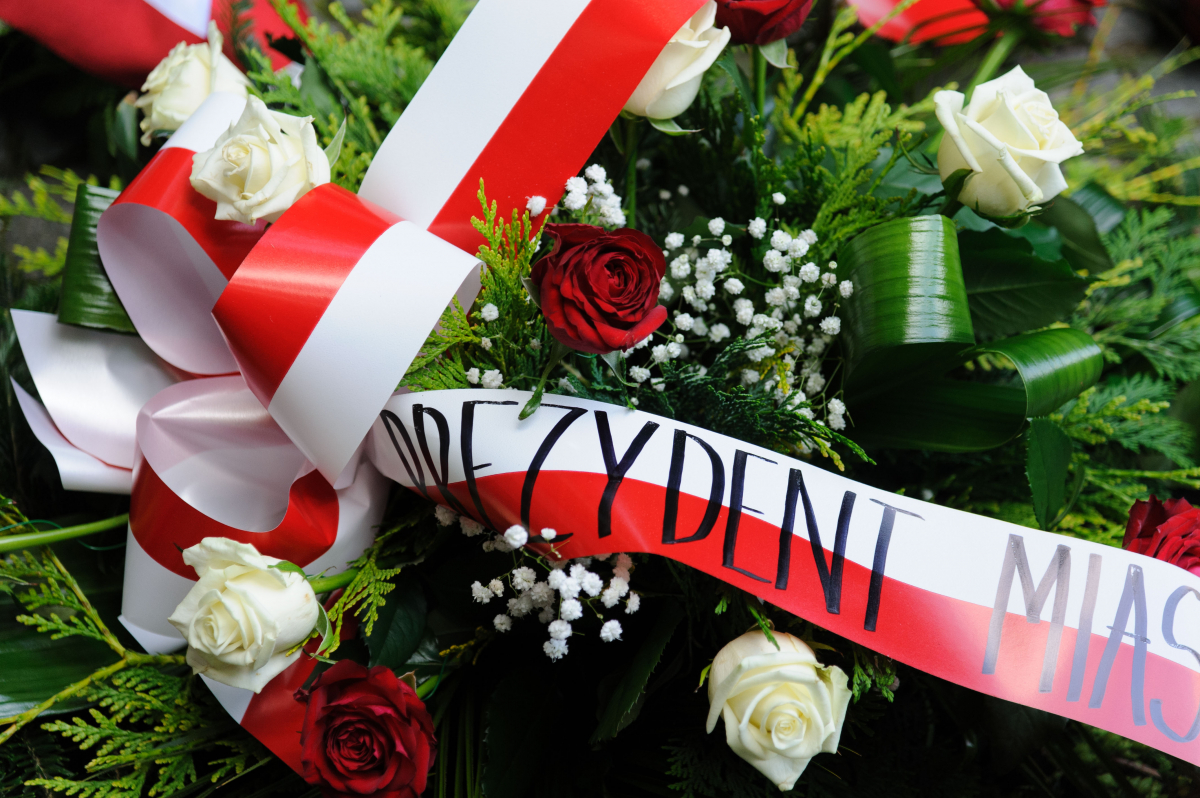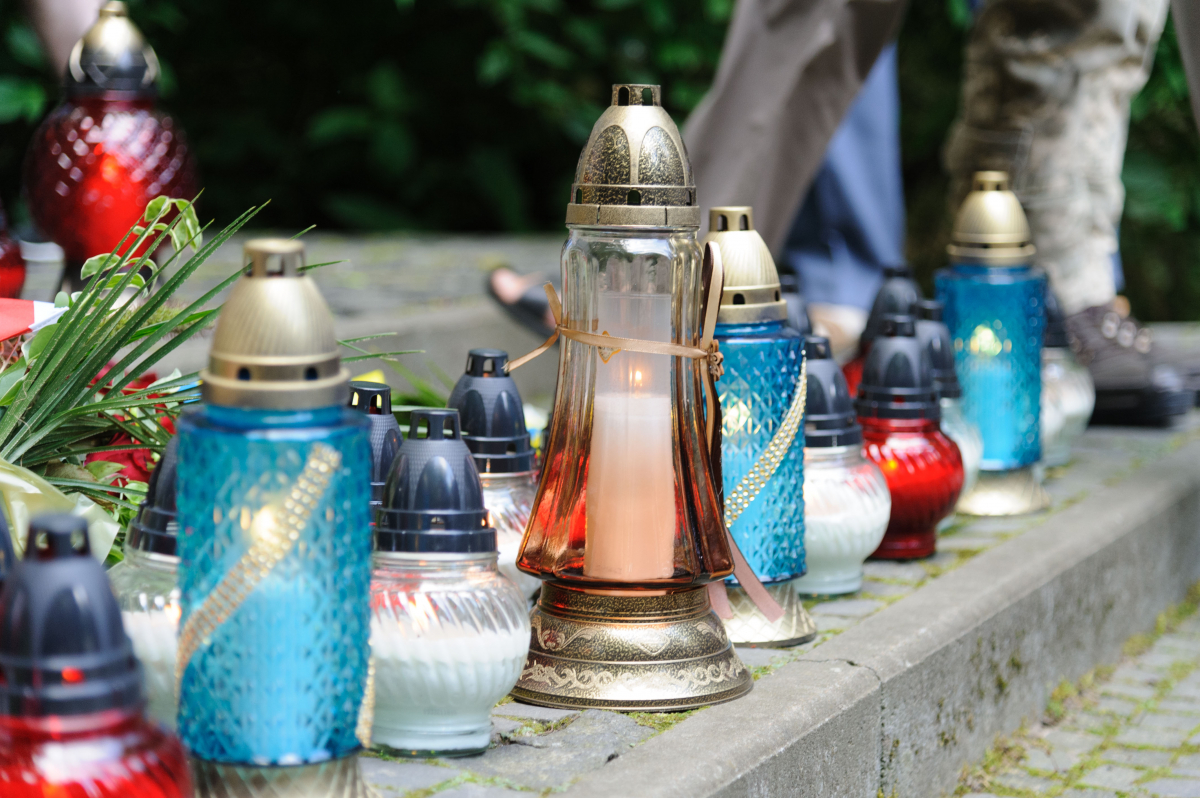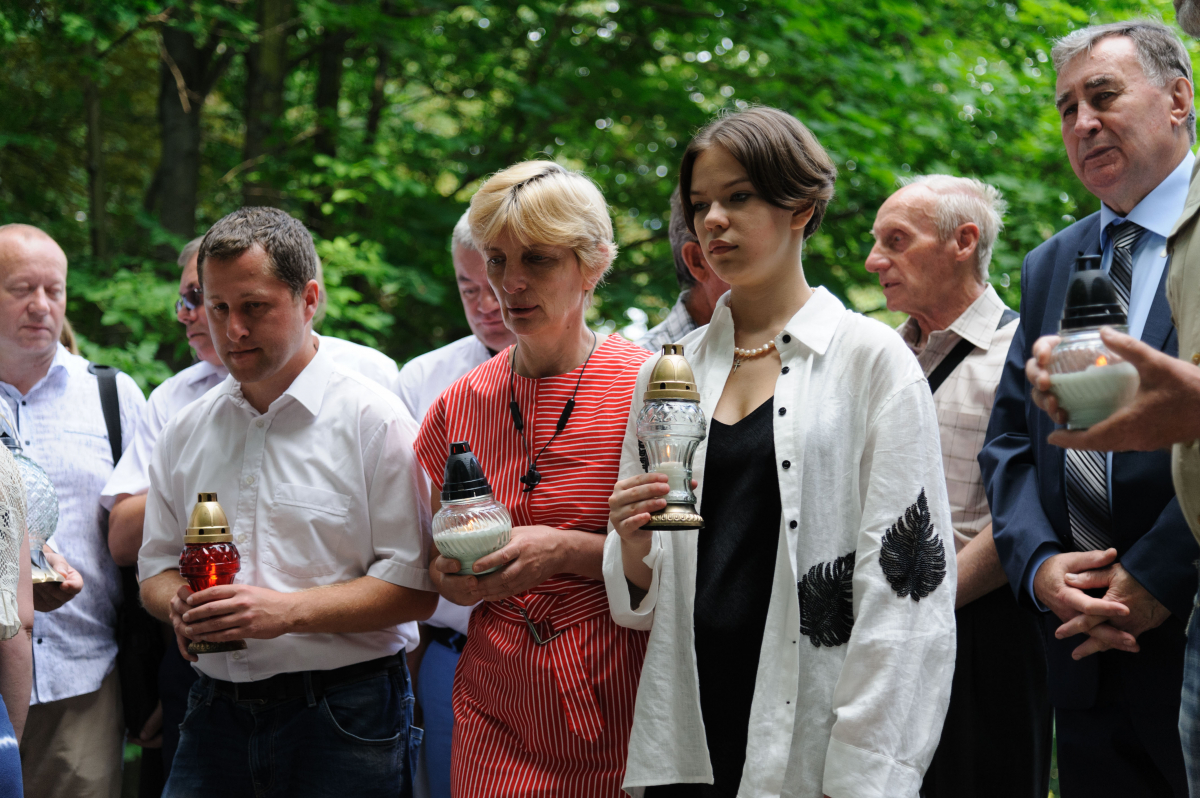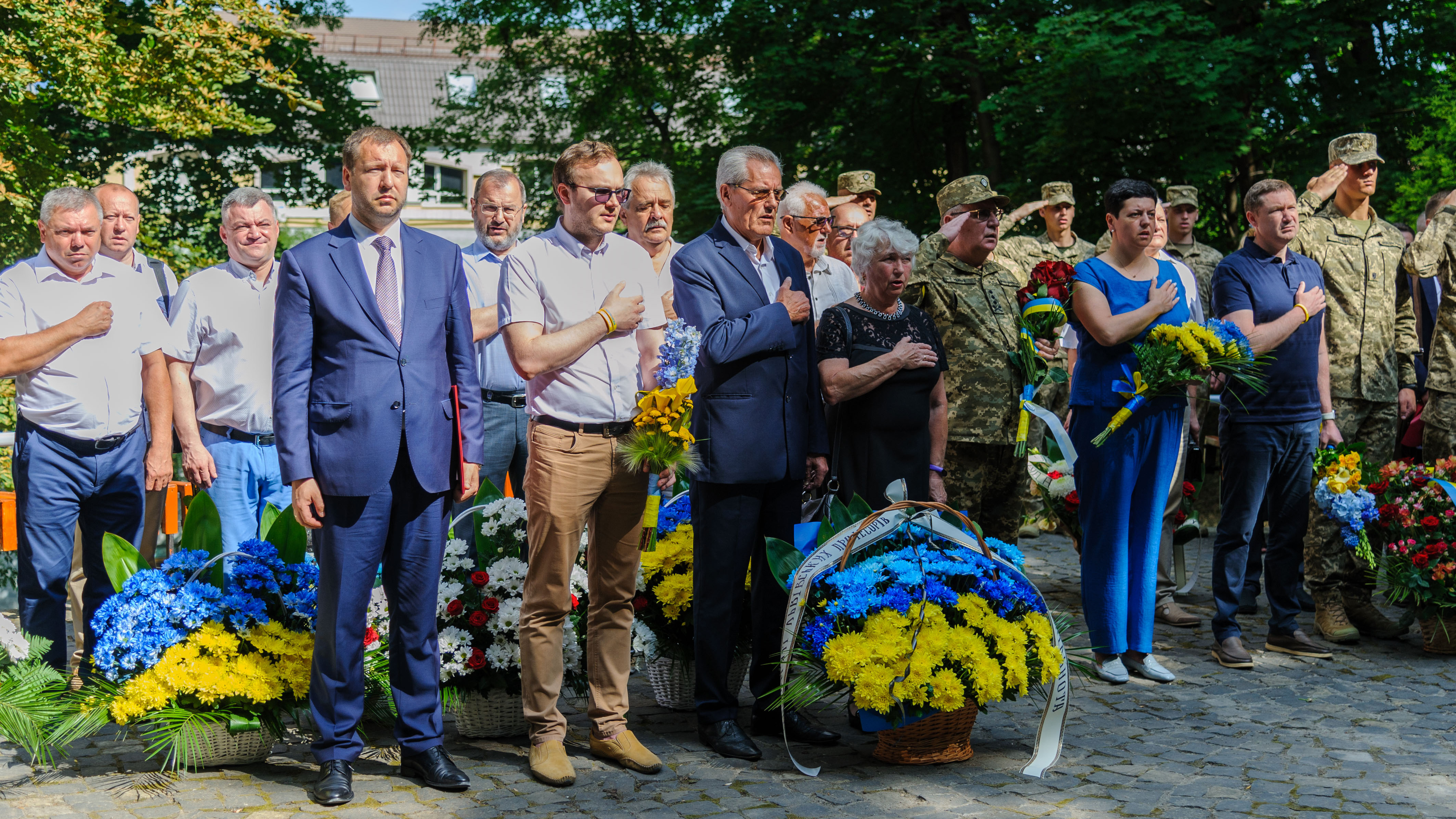Every year on July 4, we remember the events of 1941, when the Nazis arrested and later shot a group of famous Polish professors of Lviv higher education institutions and members of their families. Among them there were the rector of Lviv Polytechnic, geodesist and photogrammer Kasper Weigel, professor of architecture Kazimierz Bartel, representative of the Lviv Mathematical School, vice-rector Antoni Łomnicki, mechanical engineer Roman Witkiewicz, chemist Stanislaw Pilat, writer and literary critic Tadeusz Boy-Żeleński. The shootings took place from July 4 to 26, but the most massive one took place on the night of July 3 to 4.
On the initiative of the mayors of Lviv and Wroclaw in 2011, a monument was erected at the site of the crime. Therefore, every year on July 4, Ukrainians and Poles gather there to honour the dead, most of whom were representatives of Lviv Polytechnic, Ivan Franko University, and the Medical Institute.
Maksym Kozytskyi, head of the Lviv Regional Military Administration, Iryna Hrymak, head of the Lviv Regional Council, Andrii Moskalenko, first deputy mayor, Eliza Dzwonkiewicz, Consul General of the Republic of Poland in Lviv, Professor Yurii Bobalo, rector of Lviv Polytechnic, and his wife, vice-rectors, representatives of Institutes, University Alumni Association, partners of Polish universities, Mariusz Skiba, Vice President of Katowice, Janusz Balytski, Chairman of the Polish Society for the Protection of War Graves, Emil Lehovych, Chairman of the Board of the Society of Polish Culture of Lviv Oblast, clergy of the UGCC and RCC, in particular Bishop Volodymyr Hrutsa, Mieczysław Mokrzycki, Metropolitan of Lviv, Fr. Yurii Ostapiuk, head of the Center of Student Chaplaincy of the UGCC, as well as rectors and vice-rectors of Lviv higher education institutions attended this year's commemoration event.
The tragedy of the Vuletsky Hills is a deep wound in our history. There are also many tragic pages in Ukrainian history. And in the current aggression of the Russian occupiers, the Poles have been providing us with considerable support and assistance at all levels since the first hours of the invasion. Deep gratitude to them for all this.
The commemoration of such events as the shootings on the Vuletsky hills is a historical memory that forces one to do everything to prevent similar tragedies from repeating themselves and to counteract and prevent them as actively as possible. And the joint commemoration once again confirms the solidarity of Poles with Ukrainians, who today are fighting the Moscow aggressor to the death.
